Neuralink
Redefining Human Capabilities Through Brain-Computer Interfaces
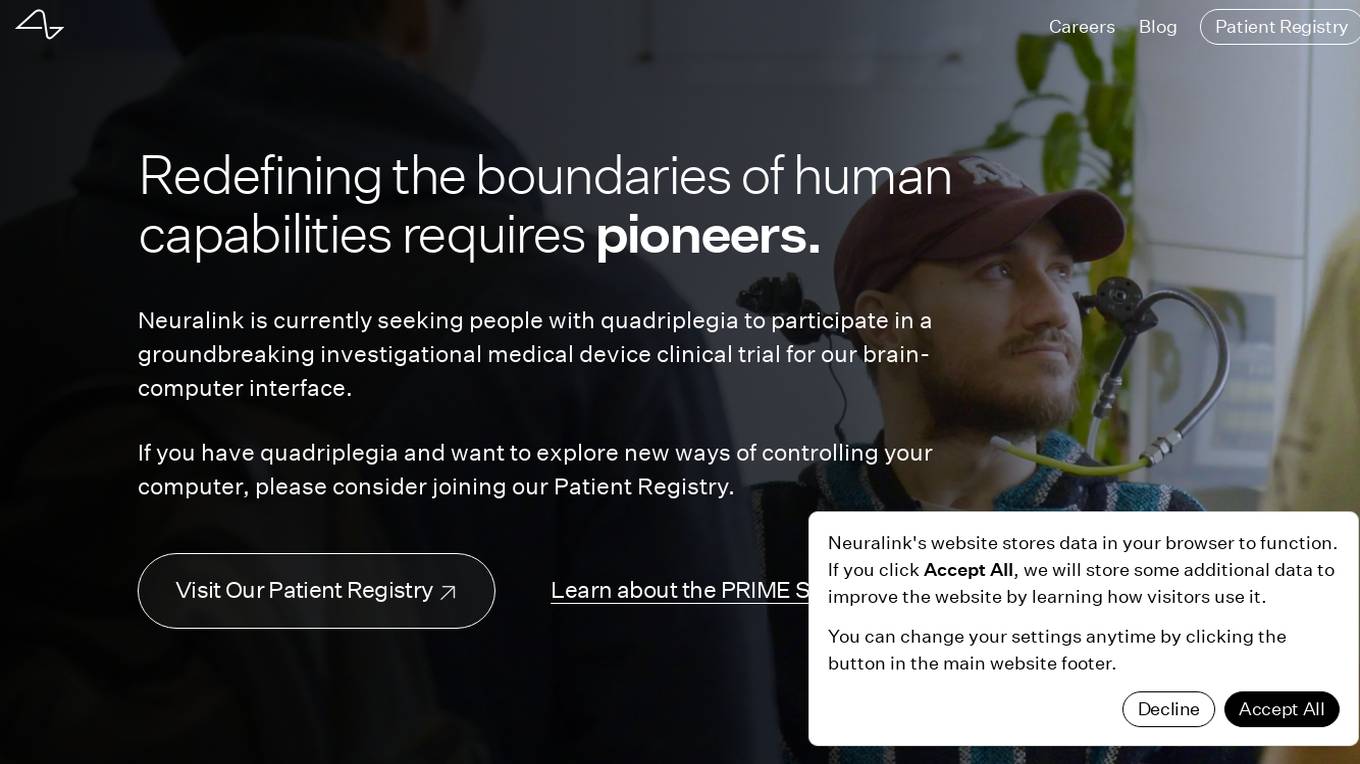
Neuralink is a pioneering brain-computer interface (BCI) application that aims to redefine human capabilities by creating a generalized brain interface to restore autonomy to individuals with unmet medical needs. The application focuses on developing fully implantable BCIs that allow users, particularly those with quadriplegia, to control computers and mobile devices using their thoughts. Neuralink's innovative technology includes advanced chips, biocompatible enclosures, and surgical robots for precise implantation. The application prioritizes safety, accessibility, and reliability in its engineering process, with future goals of restoring vision, motor function, and speech capabilities.
For Tasks:
Click tags to check more tools for each tasksFor Jobs:
Features
Advantages
Disadvantages
Frequently Asked Questions
Alternative AI tools for Neuralink
Similar sites

Neuralink
Neuralink is a pioneering brain-computer interface (BCI) application that aims to redefine human capabilities by creating a generalized brain interface to restore autonomy to individuals with unmet medical needs. The application focuses on developing fully implantable BCIs that allow users, particularly those with quadriplegia, to control computers and mobile devices using their thoughts. Neuralink's innovative technology includes advanced chips, biocompatible enclosures, and surgical robots for precise implantation. The application prioritizes safety, accessibility, and reliability in its engineering process, with future goals of restoring vision, motor function, and speech capabilities.
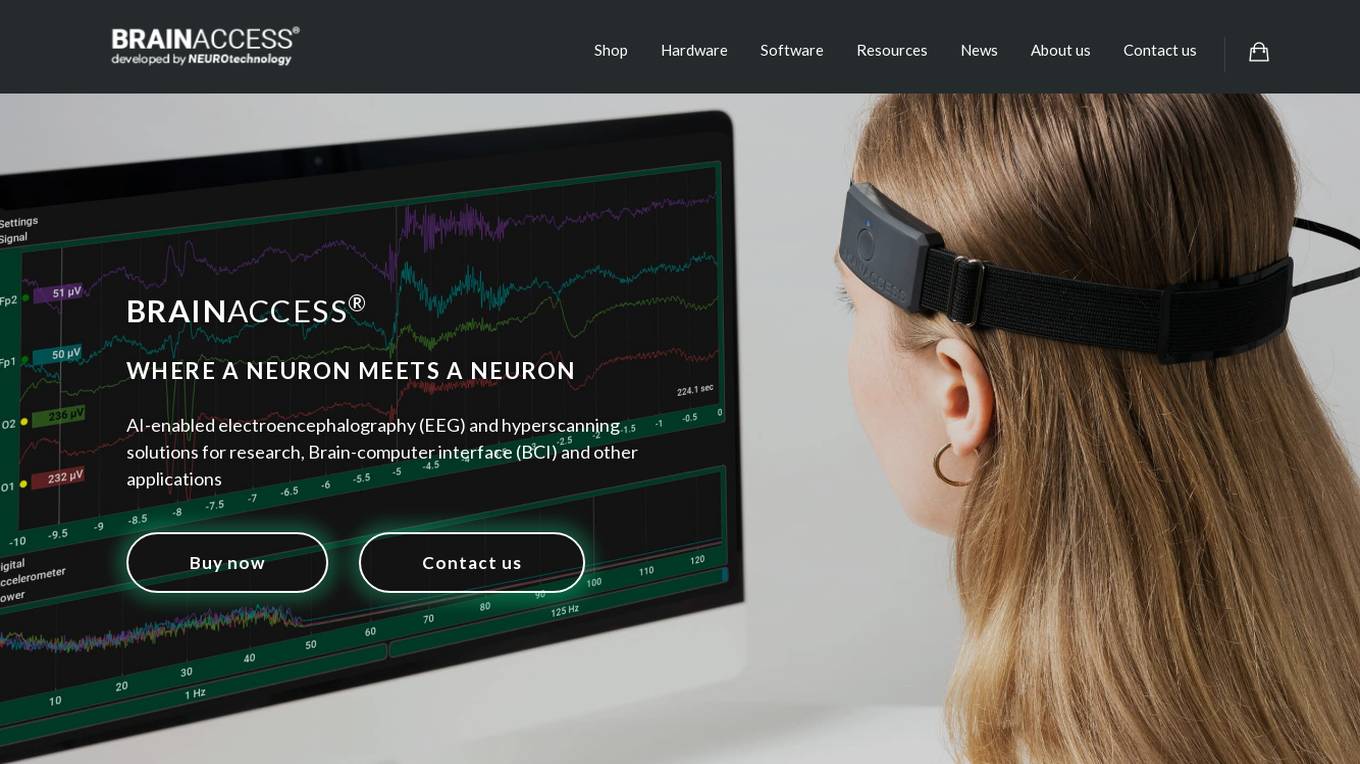
BrainAccess
BrainAccess is an AI-enabled electroencephalography (EEG) and hyperscanning solution designed for research, brain-computer interface development, neuromarketing, and beyond. It offers dry-contact EEG electrodes, wireless connectivity, and a compact form factor for portable applications. The software supports Lab Streaming Layer (LSL) protocol, enabling synchronized EEG measurements with stimulus onsets or sensor data. BrainAccess also facilitates hyperscanning, allowing synchronized brain activity measurements from multiple individuals. The user-friendly software development kit supports multiple programming languages for device control and EEG application development.
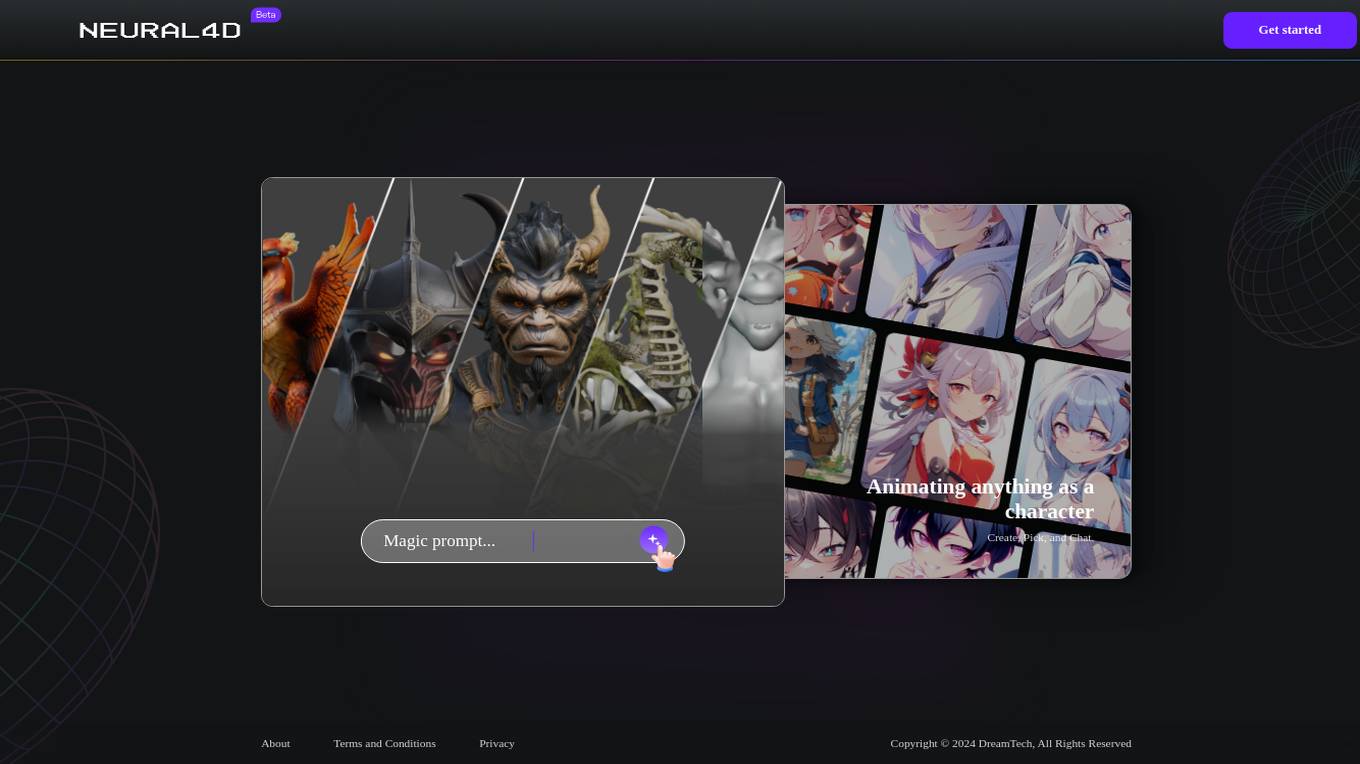
Neural4D
Neural4D is an AI tool designed to provide advanced neural network solutions. It offers a range of features for deep learning applications, including image recognition, natural language processing, and predictive analytics. With Neural4D, users can build and train complex neural networks to solve various real-world problems. The tool is user-friendly and suitable for both beginners and experienced AI practitioners.
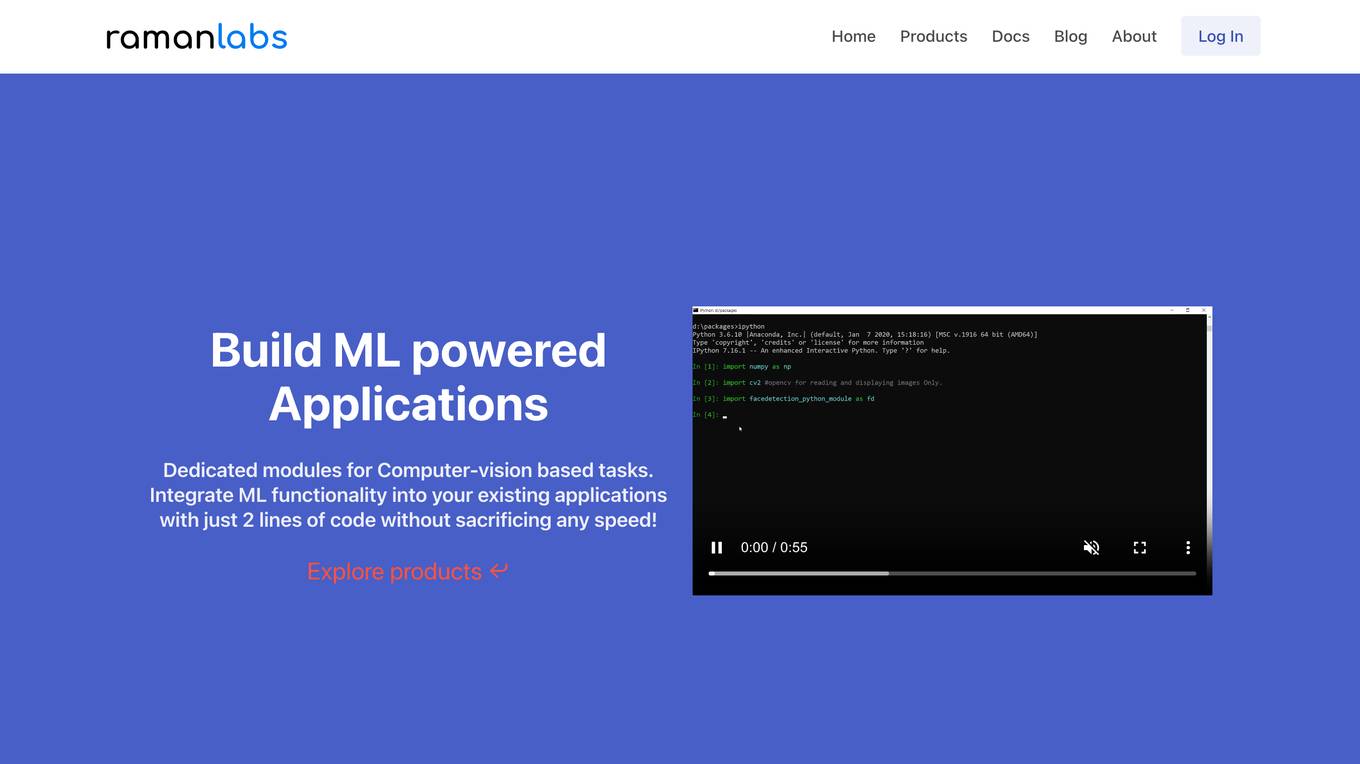
Raman Labs
Raman Labs is an AI tool that offers dedicated modules for computer vision-based tasks. It allows users to integrate machine learning functionality into their existing applications with just 2 lines of code, ensuring real-time performance even with high-resolution data on consumer-grade CPUs. The tool provides a clean and minimalistic API for easy integration, robust to large scale and resolution variations, versatile to run on various platforms, and adaptive to scale with the computing power of the system.
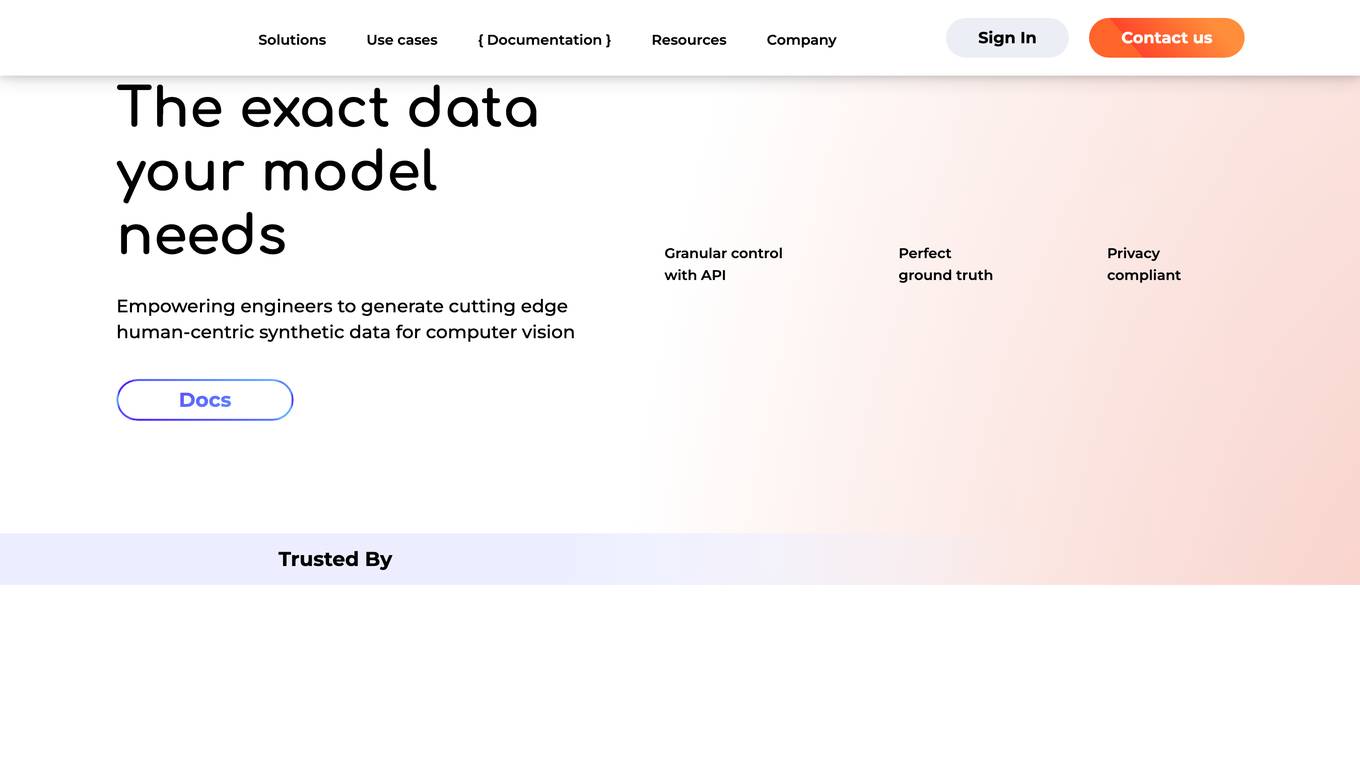
Datagen
Datagen is a platform that provides synthetic data for computer vision. Synthetic data is artificially generated data that can be used to train machine learning models. Datagen's data is generated using a variety of techniques, including 3D modeling, computer graphics, and machine learning. The company's data is used by a variety of industries, including automotive, security, smart office, fitness, cosmetics, and facial applications.
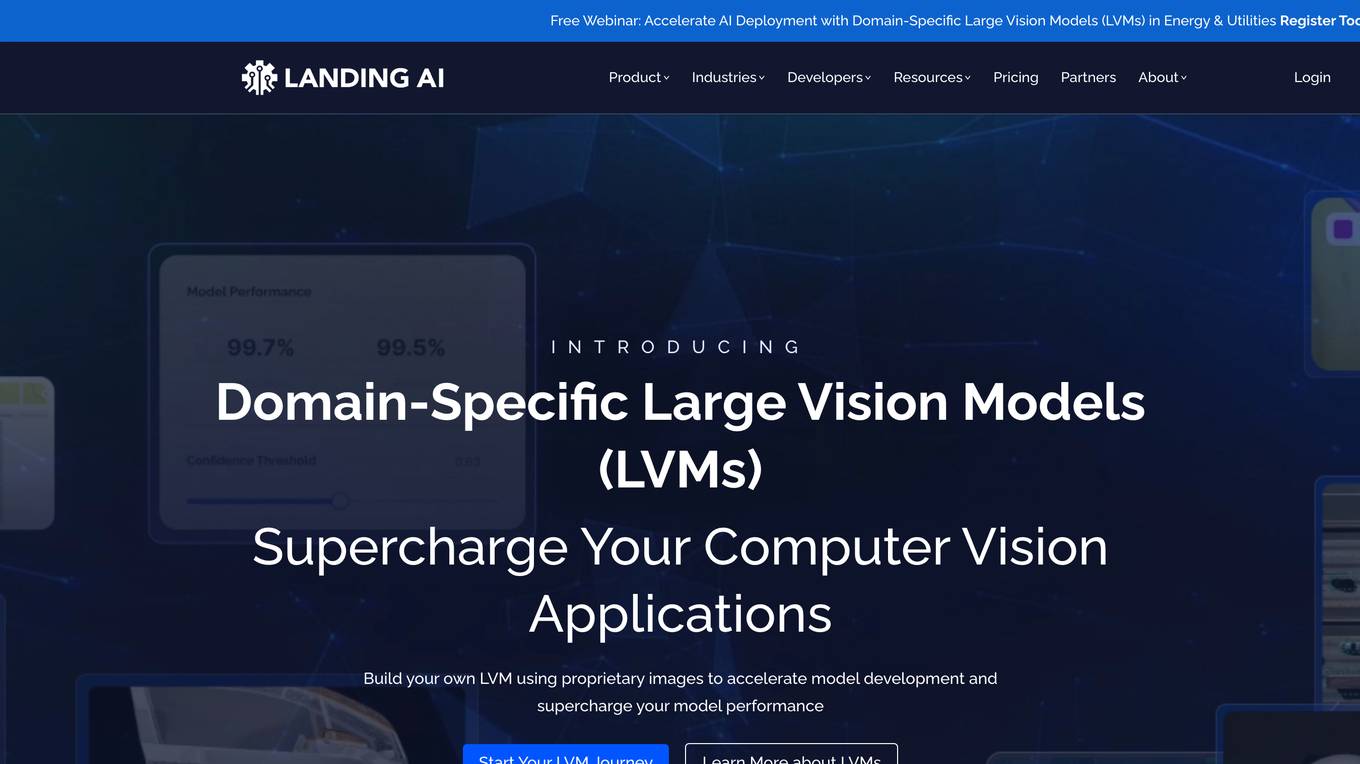
Landing AI
Landing AI is a computer vision platform and AI software company that provides a cloud-based platform for building and deploying computer vision applications. The platform includes a library of pre-trained models, a set of tools for data labeling and model training, and a deployment service that allows users to deploy their models to the cloud or edge devices. Landing AI's platform is used by a variety of industries, including automotive, electronics, food and beverage, medical devices, life sciences, agriculture, manufacturing, infrastructure, and pharma.
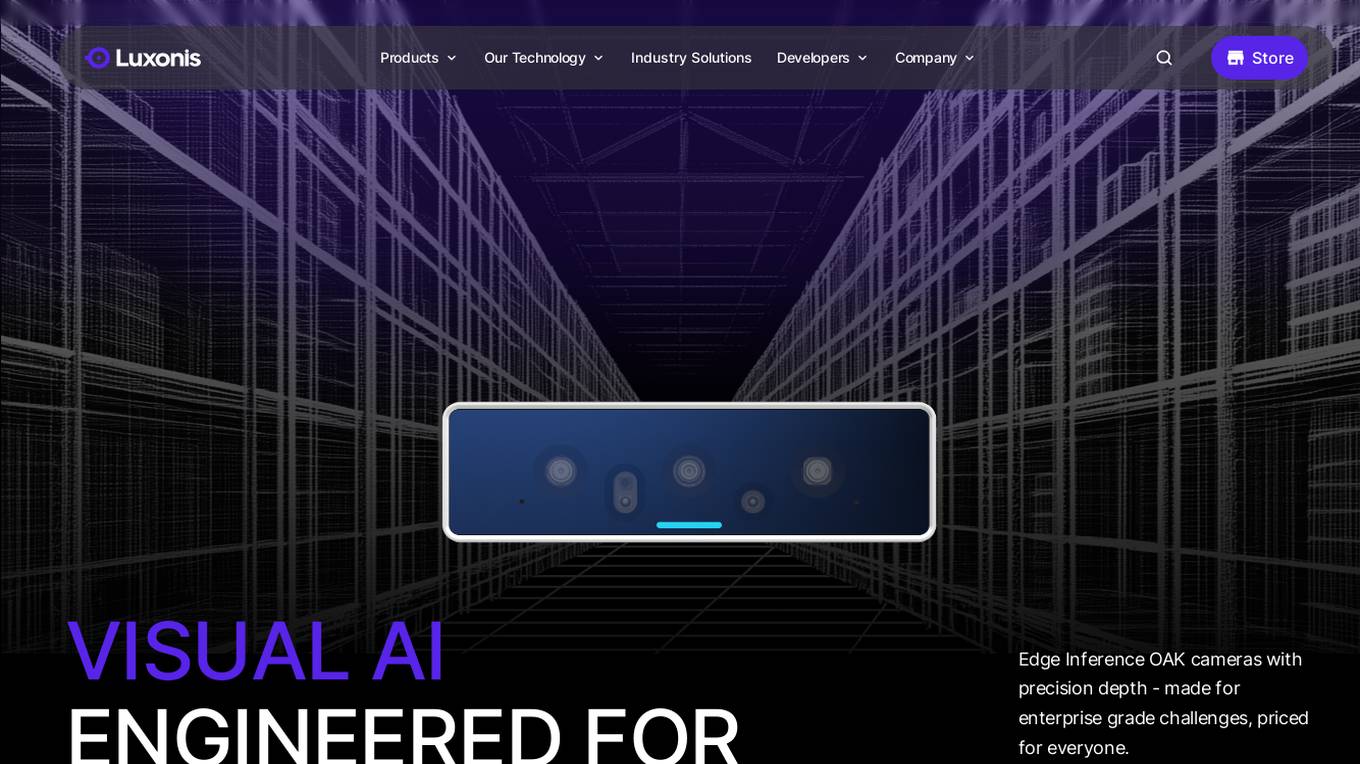
Luxonis
Luxonis is an AI application that offers Visual AI solutions engineered for precision edge inference. The application provides stereo depth cameras with unique features and quality, enabling users to perform advanced vision tasks on-device, reducing latency and bandwidth demands. With open-source DepthAI API, users can create and deploy custom vision solutions that scale with their needs. Luxonis also offers real-world training data for self-improving vision intelligence and operates flawlessly through vibrations, temperature shifts, and extended use. The application integrates advanced sensing capabilities with up to 48MP cameras, wide field of view, IMUs, microphones, ToF, thermal, IR illumination, and active stereo for unparalleled perception.
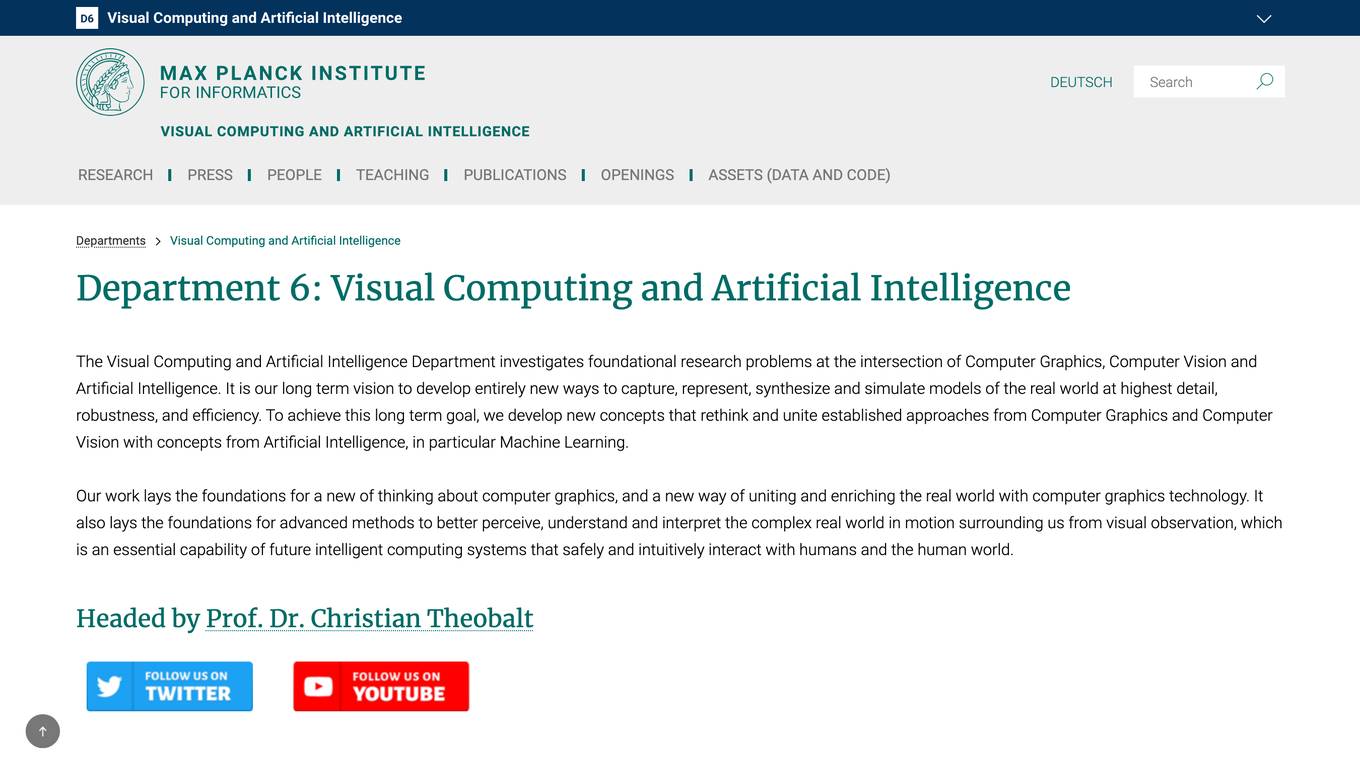
Max Planck Institute for Informatics
The Max Planck Institute for Informatics focuses on Visual Computing and Artificial Intelligence, conducting research at the intersection of Computer Graphics, Computer Vision, and Artificial Intelligence. The institute aims to develop innovative methods to capture, represent, synthesize, and simulate real-world models with high detail, robustness, and efficiency. By combining concepts from Computer Graphics, Computer Vision, and Artificial Intelligence, the institute lays the groundwork for advanced computing systems that can interact intelligently with humans and the environment.
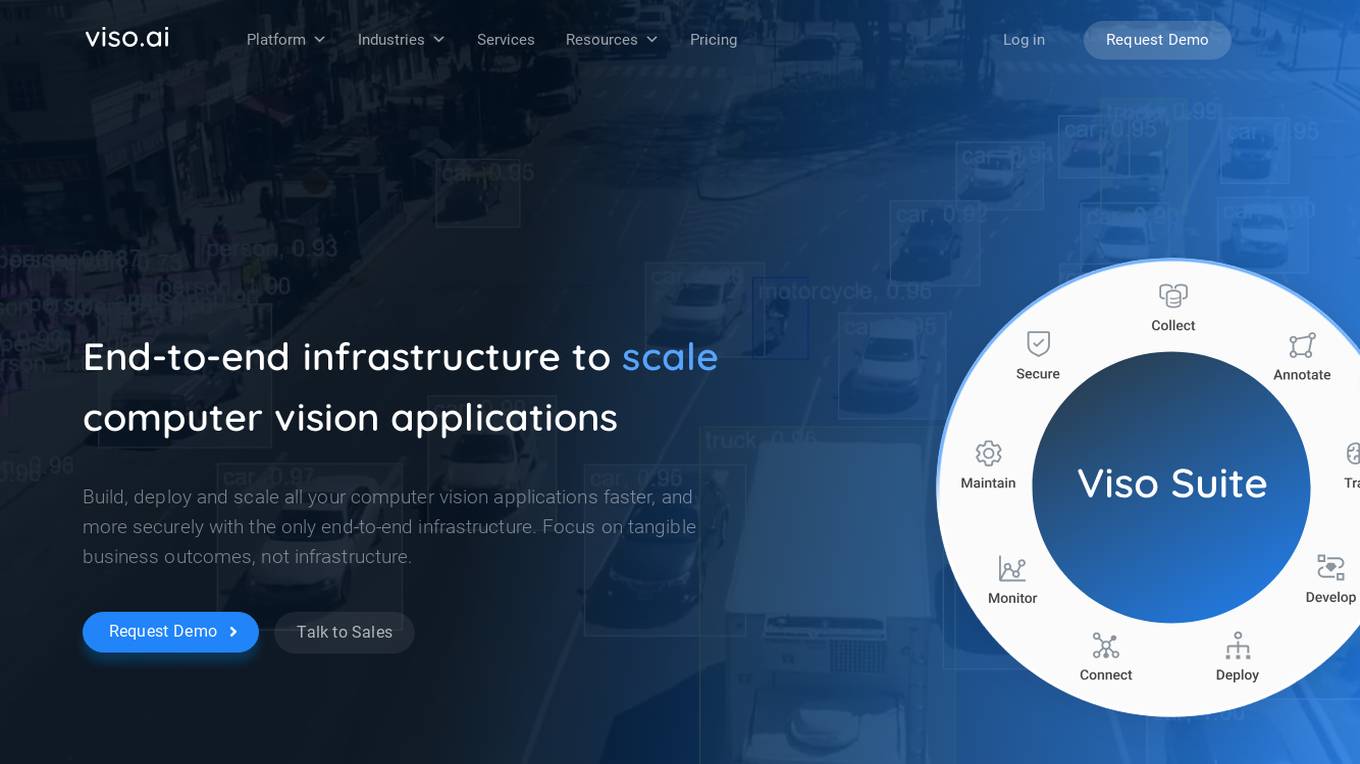
Viso Suite
Viso Suite is a no-code computer vision platform that enables users to build, deploy, and scale computer vision applications. It provides a comprehensive set of tools for data collection, annotation, model training, application development, and deployment. Viso Suite is trusted by leading Fortune Global companies and has been used to develop a wide range of computer vision applications, including object detection, image classification, facial recognition, and anomaly detection.

Ultralytics YOLO
Ultralytics YOLO is an advanced real-time object detection and image segmentation model that leverages cutting-edge advancements in deep learning and computer vision. It offers unparalleled performance in terms of speed and accuracy, making it suitable for various applications and easily adaptable to different hardware platforms. The comprehensive Ultralytics Docs provide resources to help users understand and utilize its features and capabilities, catering to both seasoned machine learning practitioners and newcomers to the field.
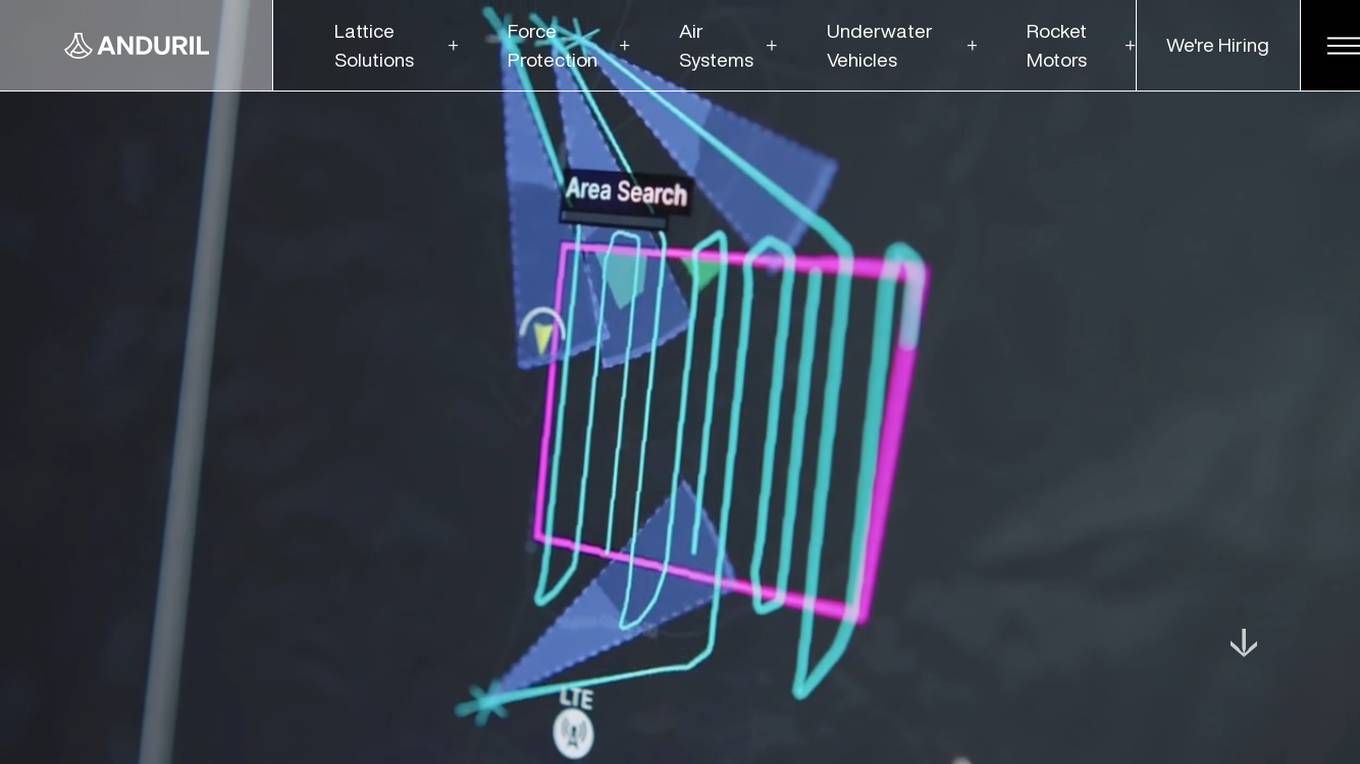
Anduril Industries
Anduril Industries is a defense technology company that develops autonomous systems for land, sea, and air. The company's products include the Lattice operating system, which powers a family of autonomous systems that provide integrated, persistent awareness and security. Anduril also develops counter-UAS, counter-intrusion, and maritime counter-intrusion systems. The company's mission is to transform defense capabilities with advanced technology.
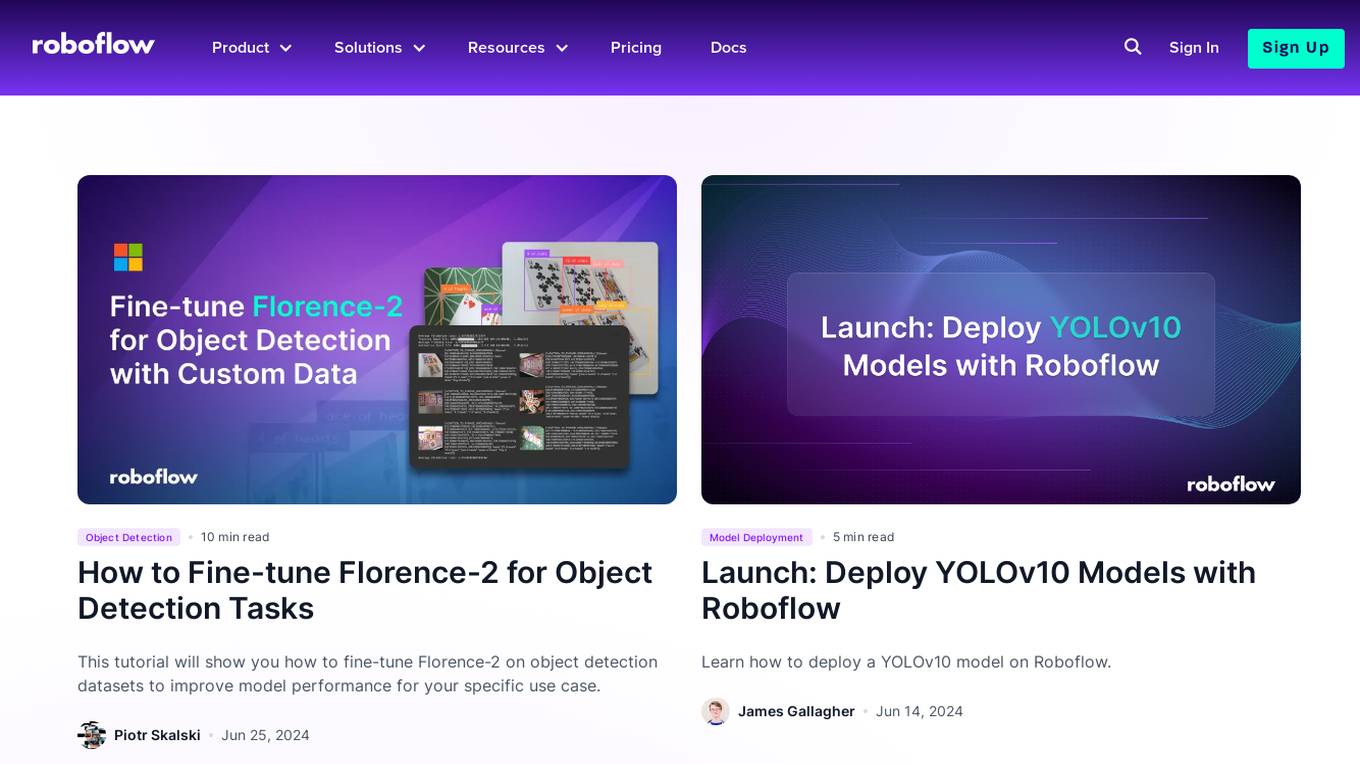
Roboflow
Roboflow is an AI tool designed for computer vision tasks, offering a platform that allows users to annotate, train, deploy, and perform inference on models. It provides integrations, ecosystem support, and features like notebooks, autodistillation, and supervision. Roboflow caters to various industries such as aerospace, agriculture, healthcare, finance, and more, with a focus on simplifying the development and deployment of computer vision models.
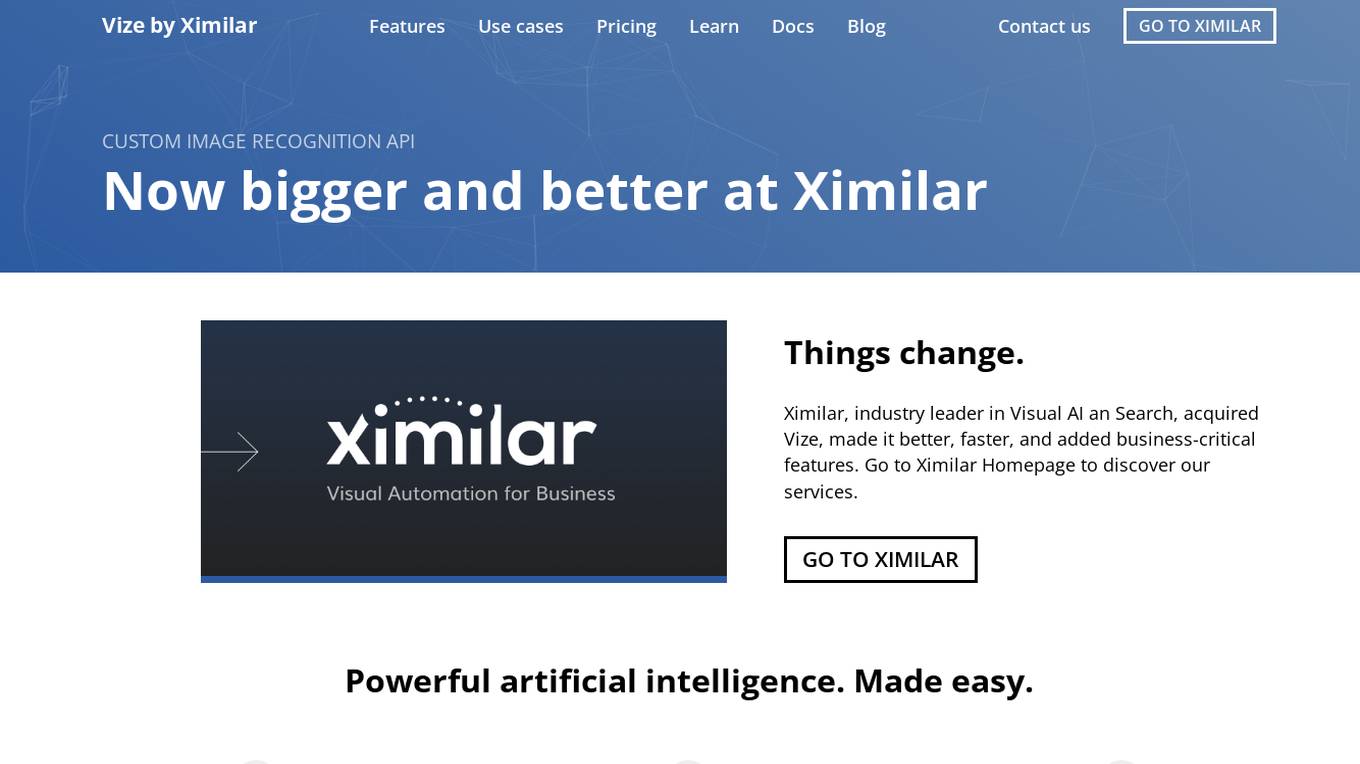
Vize.ai
Vize.ai is a custom image recognition API provided by Ximilar, a leading company in Visual AI and Search. The tool offers powerful artificial intelligence capabilities with high accuracy using deep learning algorithms. It allows users to easily set up and implement cutting-edge vision automation without any development costs. Vize.ai enables users to train custom neural networks to recognize specific images and provides a scalable solution with continuous improvements in machine learning algorithms. The tool features an intuitive interface that requires no machine learning or coding knowledge, making it accessible for a wide range of users across industries.
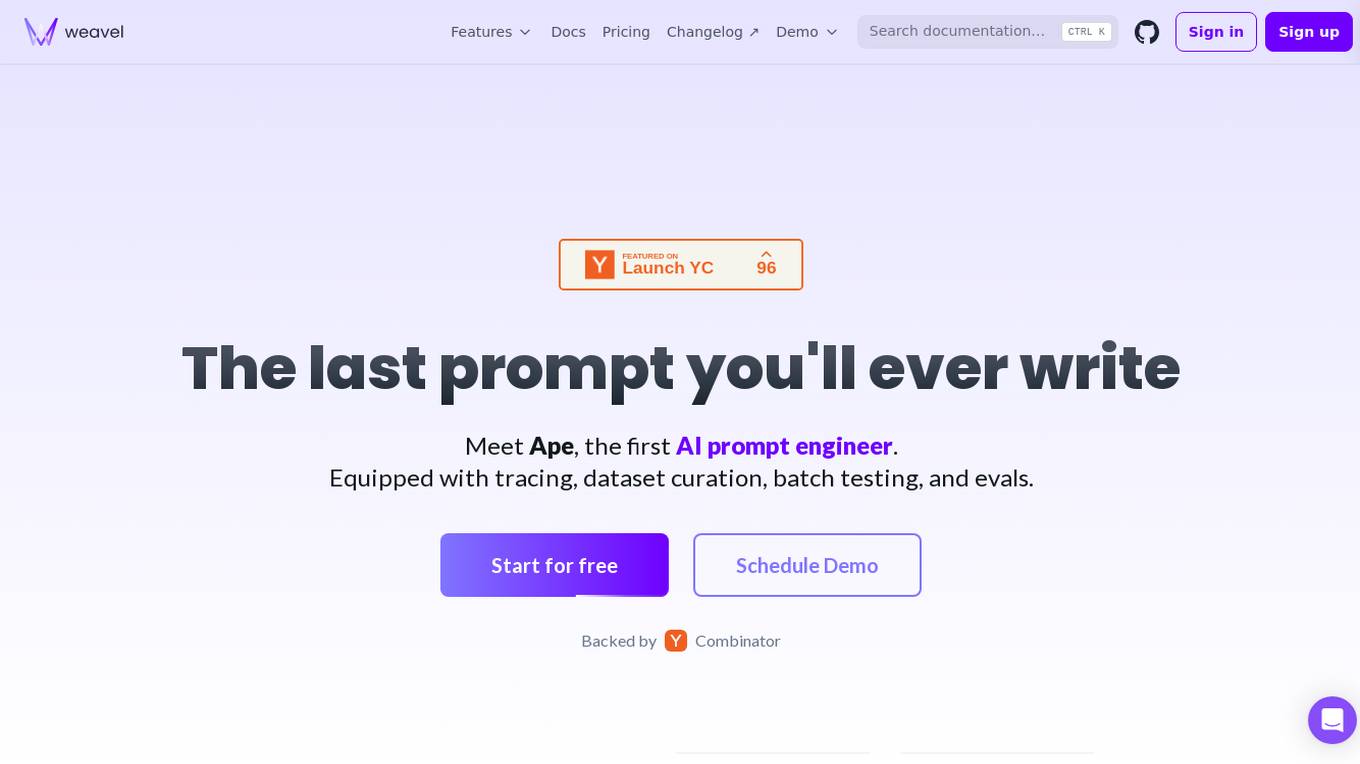
Weavel
Weavel is an AI tool designed to revolutionize prompt engineering for large language models (LLMs). It offers features such as tracing, dataset curation, batch testing, and evaluations to enhance the performance of LLM applications. Weavel enables users to continuously optimize prompts using real-world data, prevent performance regression with CI/CD integration, and engage in human-in-the-loop interactions for scoring and feedback. Ape, the AI prompt engineer, outperforms competitors on benchmark tests and ensures seamless integration and continuous improvement specific to each user's use case. With Weavel, users can effortlessly evaluate LLM applications without the need for pre-existing datasets, streamlining the assessment process and enhancing overall performance.
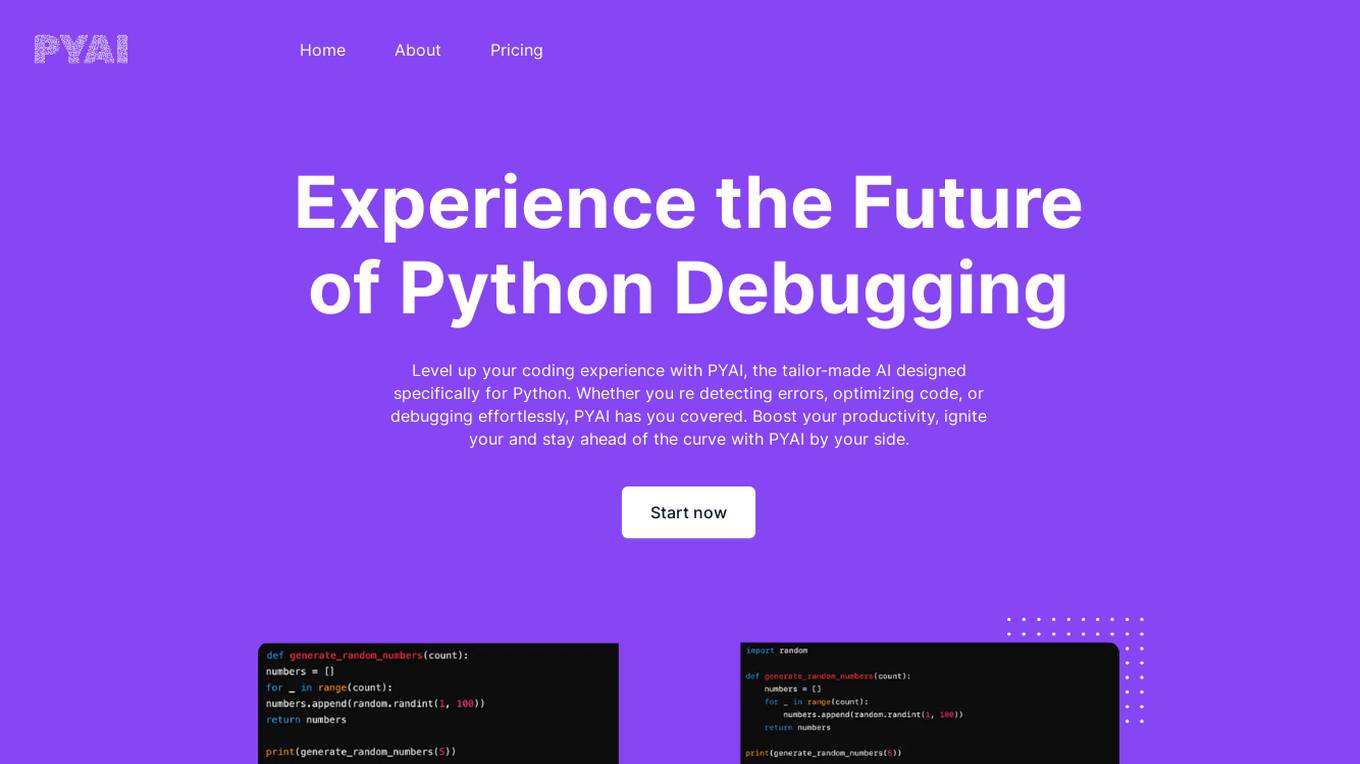
PyAI
PyAI is an advanced AI tool designed for developers and data scientists to streamline their workflow and enhance productivity. It offers a wide range of AI capabilities, including machine learning algorithms, natural language processing, computer vision, and more. With PyAI, users can easily build, train, and deploy AI models for various applications, such as predictive analytics, image recognition, and text classification. The tool provides a user-friendly interface and comprehensive documentation to support users at every stage of their AI projects.
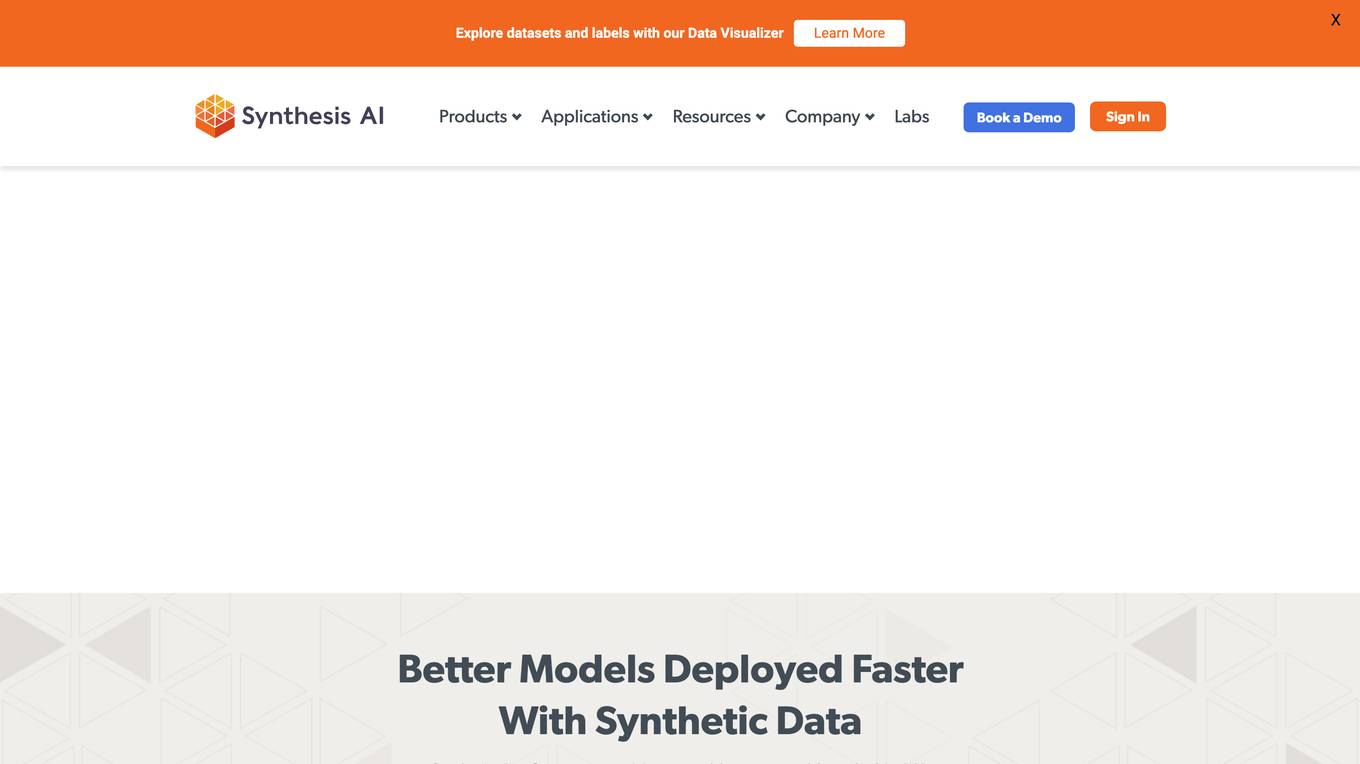
Synthesis AI
Synthesis AI is a synthetic data platform that enables more capable and ethical computer vision AI. It provides on-demand labeled images and videos, photorealistic images, and 3D generative AI to help developers build better models faster. Synthesis AI's products include Synthesis Humans, which allows users to create detailed images and videos of digital humans with rich annotations; Synthesis Scenarios, which enables users to craft complex multi-human simulations across a variety of environments; and a range of applications for industries such as ID verification, automotive, avatar creation, virtual fashion, AI fitness, teleconferencing, visual effects, and security.
For similar tasks

Neuralink
Neuralink is a pioneering brain-computer interface (BCI) application that aims to redefine human capabilities by creating a generalized brain interface to restore autonomy to individuals with unmet medical needs. The application focuses on developing fully implantable BCIs that allow users, particularly those with quadriplegia, to control computers and mobile devices using their thoughts. Neuralink's innovative technology includes advanced chips, biocompatible enclosures, and surgical robots for precise implantation. The application prioritizes safety, accessibility, and reliability in its engineering process, with future goals of restoring vision, motor function, and speech capabilities.
For similar jobs
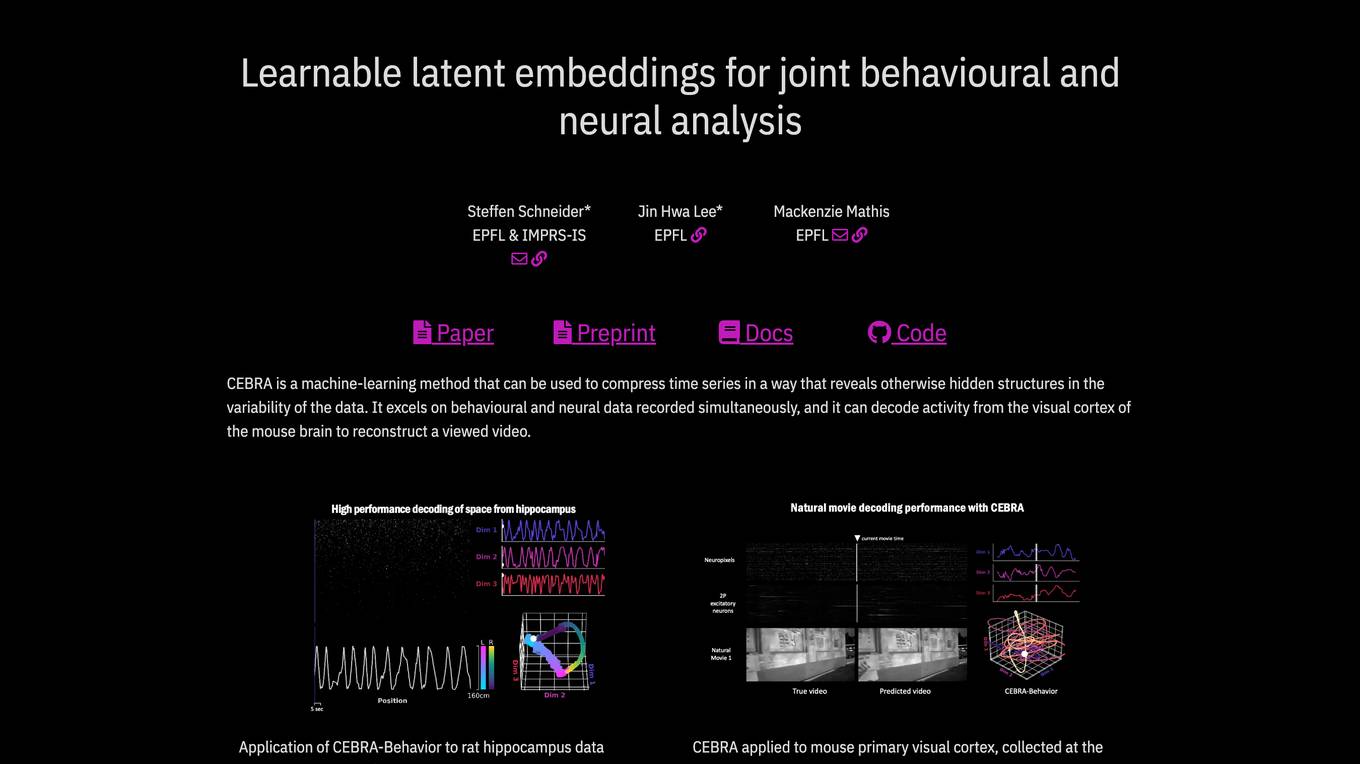
CEBRA
CEBRA is a self-supervised learning algorithm designed for obtaining interpretable embeddings of high-dimensional recordings using auxiliary variables. It excels in compressing time series data to reveal hidden structures, particularly in behavioral and neural data. The algorithm can decode neural activity, reconstruct viewed videos, decode trajectories, and determine position during navigation. CEBRA is a valuable tool for joint behavioral and neural analysis, providing consistent and high-performance latent spaces for hypothesis testing and label-free applications across various datasets and species.
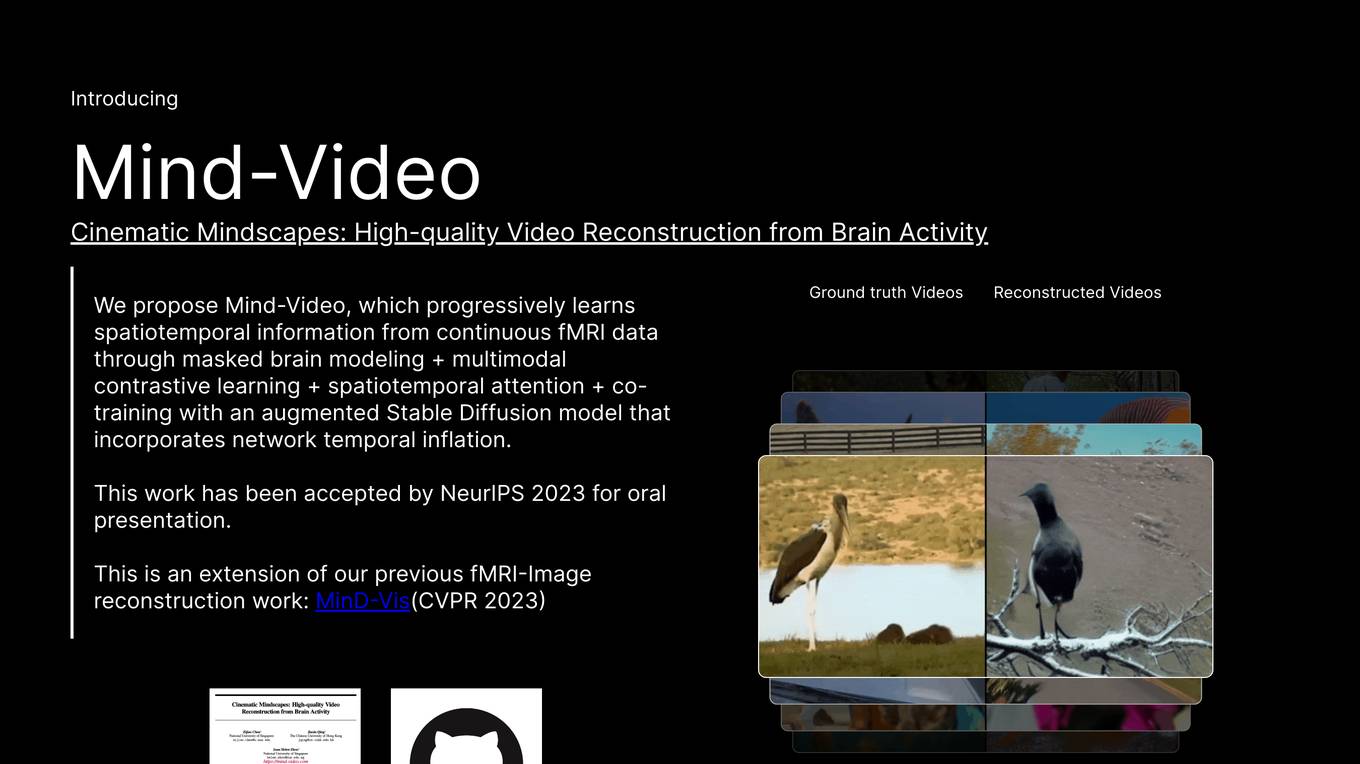
Mind-Video
Mind-Video is an AI tool that focuses on high-quality video reconstruction from brain activity data. It bridges the gap between image and video brain decoding by utilizing masked brain modeling, multimodal contrastive learning, spatiotemporal attention, and co-training with an augmented Stable Diffusion model. The tool aims to recover accurate semantic information from fMRI signals, enabling the generation of realistic videos based on brain activities.
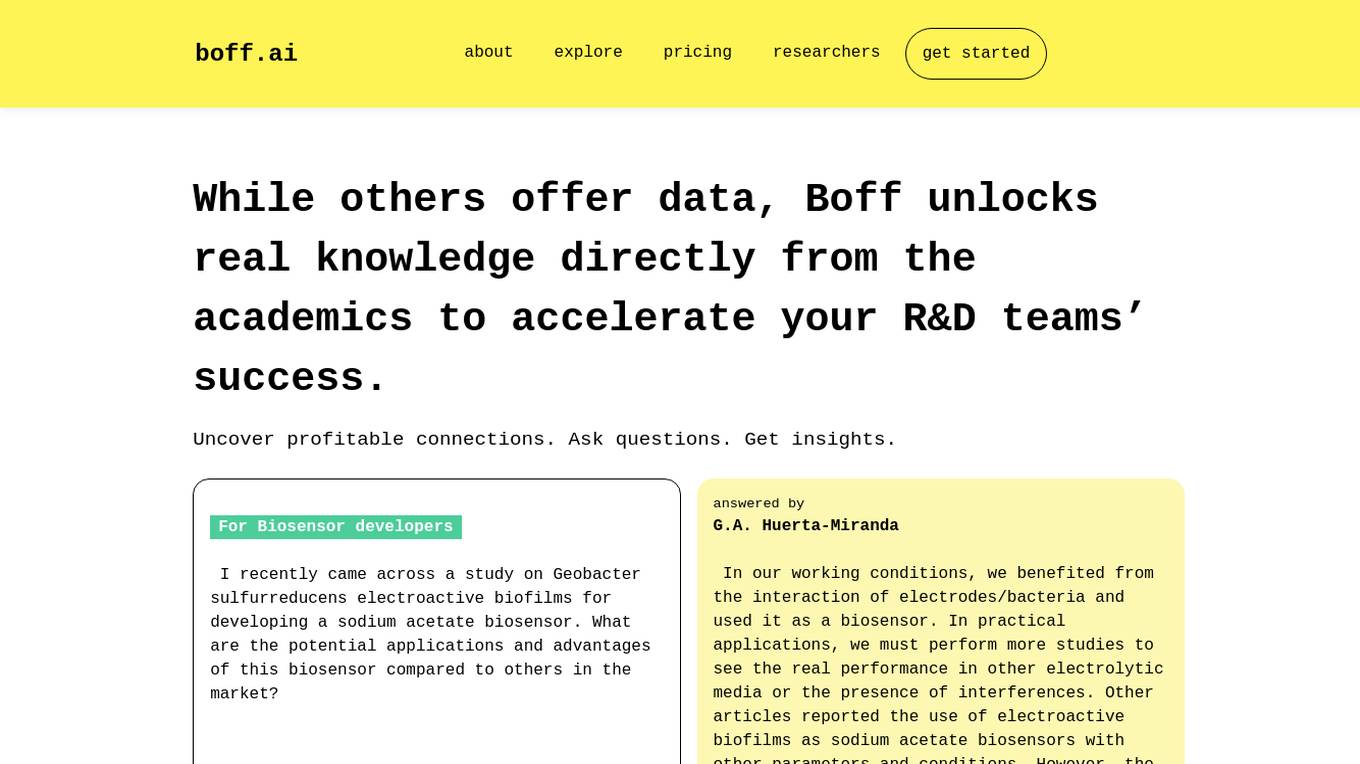
Boff.ai
Boff.ai is an AI tool that connects professionals with academia to unlock opportunities and funding for research and development teams. It helps users ask specific questions across various topics and sources replies from experts in the field. The platform ensures privacy and focuses on solutions required, making it a trusted resource for 30,000 academics and R&D professionals.
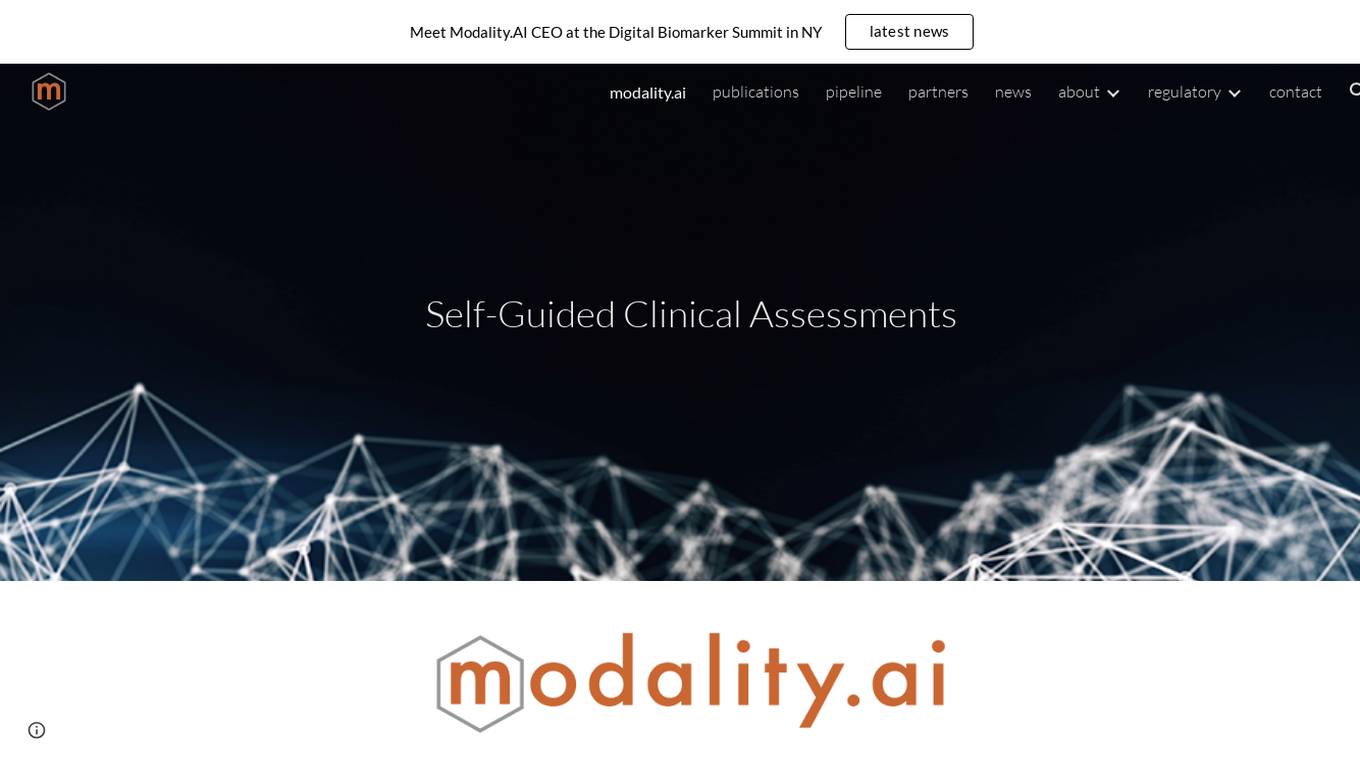
Modality.AI
Modality.AI is an AI application that has developed an automated, clinically validated system to assess neurological and psychiatric states both in clinic and remotely. The platform utilizes conversational AI to monitor conditions accurately and consistently, allowing researchers and clinicians to review data in near real-time and monitor treatment response over time. Modality.AI collaborates with world-class AI/Machine Learning experts and leading institutions to provide a HIPAA-compliant system for assessing various indications such as ALS, Parkinson's, depression, autism, Huntington's Disease, schizophrenia, and mild cognitive impairment. The platform enables convenient monitoring at home through streaming and analysis of speech and facial responses, without the need for special software or apps. Modality.AI is accessible on various devices with a browser, webcam, and microphone, offering a new approach to efficient and cost-effective clinical trials.

Neuralink
Neuralink is a pioneering brain-computer interface (BCI) application that aims to redefine human capabilities by creating a generalized brain interface to restore autonomy to individuals with unmet medical needs. The application focuses on developing fully implantable BCIs that allow users, particularly those with quadriplegia, to control computers and mobile devices using their thoughts. Neuralink's innovative technology includes advanced chips, biocompatible enclosures, and surgical robots for precise implantation. The application prioritizes safety, accessibility, and reliability in its engineering process, with future goals of restoring vision, motor function, and speech capabilities.
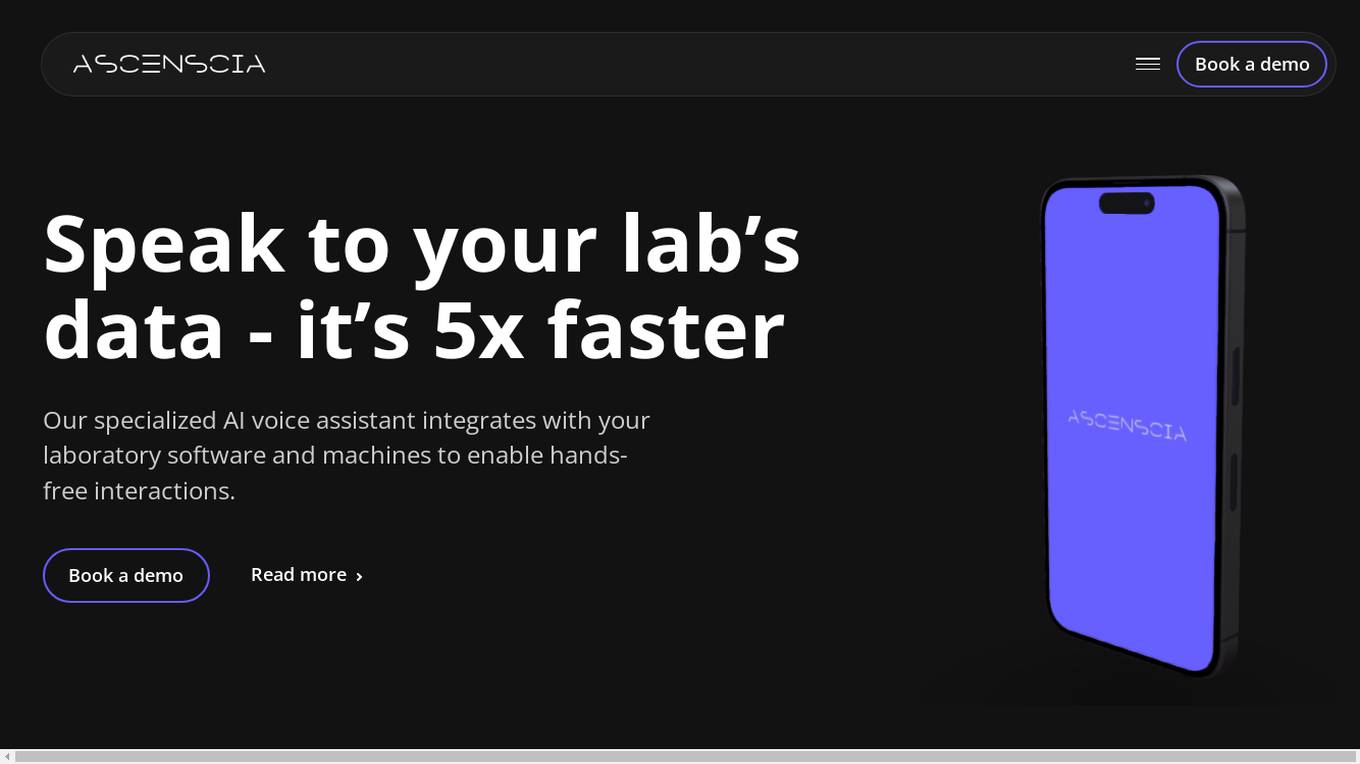
Ascenscia
Ascenscia is a specialized AI voice assistant designed to streamline lab digitization processes. It integrates with laboratory software and machines to enable hands-free interactions, automating data collection, optimizing workflows, and accelerating R&D cycles. Ascenscia offers features such as data accessibility, data capturing, inventory access, and additional task management. The application is designed for scientific labs, addressing concerns with precision, safety, and adaptability. It boasts high accuracy in understanding scientific terminologies, end-to-end data encryption, multi-lingual support, and customization options for different lab workflows.

HUAWEI Cloud Pangu Drug Molecule Model
HUAWEI Cloud Pangu is an AI tool designed for accelerating drug discovery by optimizing drug molecules. It offers features such as Molecule Search, Molecule Optimizer, and Pocket Molecule Design. Users can submit molecules for optimization and view historical optimization results. The tool is based on the MindSpore framework and has been visited over 300,000 times since August 23, 2021.
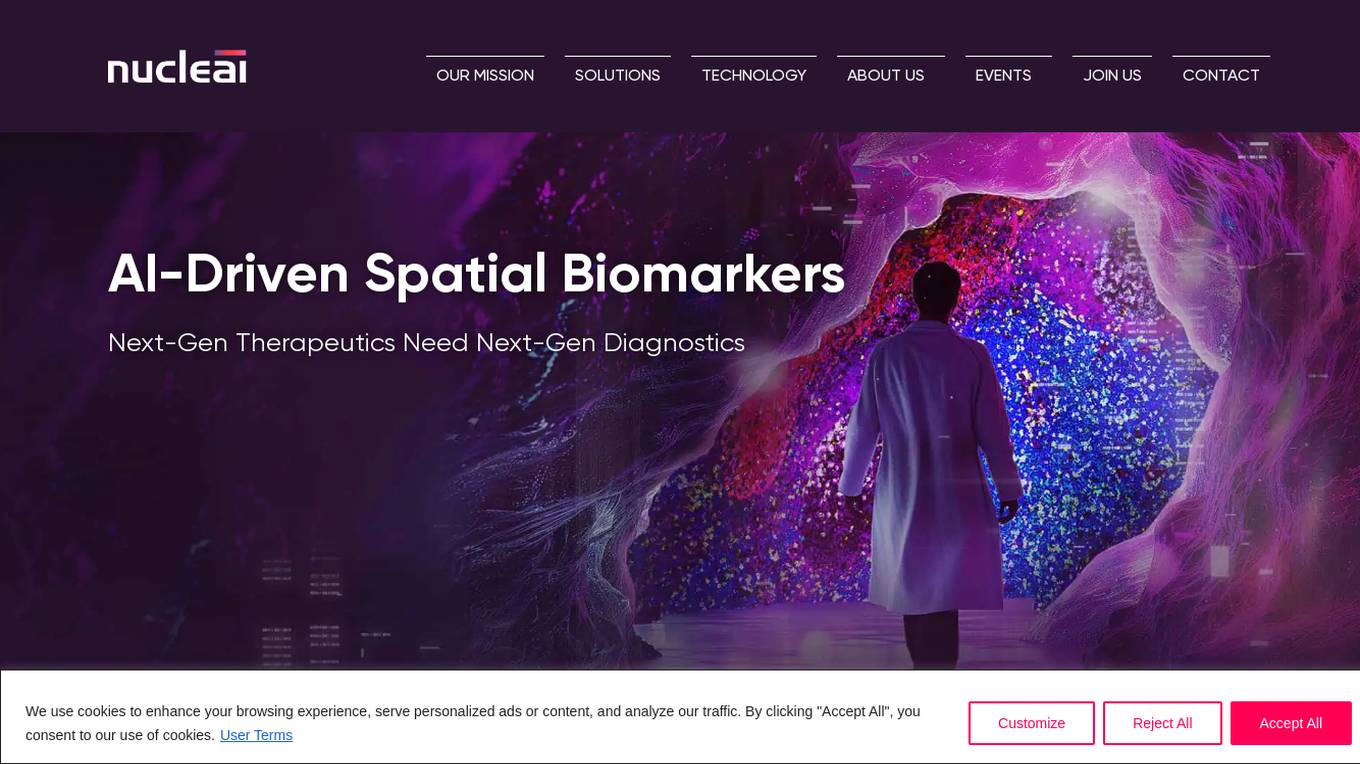
Nucleai
Nucleai is an AI-driven spatial biomarker analysis tool that leverages military intelligence-grade geospatial AI methods to analyze complex cellular interactions in a patient's biopsy. The platform offers a first-of-its-kind multimodal solution by ingesting images from various modalities and delivering actionable insights to optimize biomarker scoring, predict response to therapy, and revolutionize disease diagnosis and treatment.

Exscientia
Exscientia is a technology-driven drug design and development company that combines precision design with integrated experimentation to create more effective medicines for patients faster. They operate at the interfaces of human ingenuity, artificial intelligence (AI), automation, and physical engineering, pioneering the use of AI in drug discovery. Exscientia aims to change the underlying economics of drug discovery by rapidly advancing the best scientific ideas into medicines for patients.
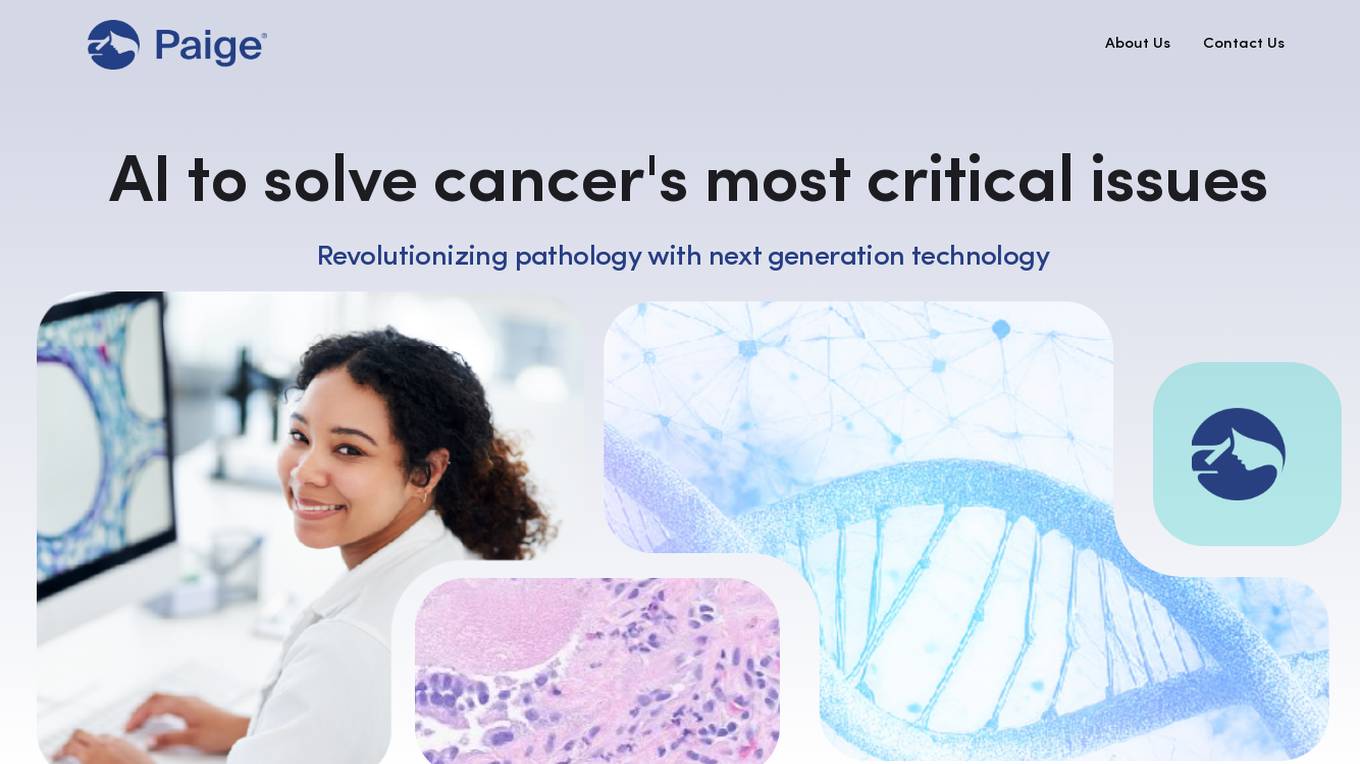
Paige AI
Paige is a leading AI company revolutionizing pathology with next-generation technology. They provide diagnostic and biomarker AI, predictive analytics technology, and AI-assisted applications to support cancer detection, subtyping, and molecular biomarker discovery from tissue samples. Paige offers a range of AI suites for prostate, breast, colon, and PanCancer, as well as the innovative Paige Alba™ multi-modal co-pilot. Their advanced AI technology and services help streamline AI development, optimize existing applications, and drive groundbreaking advancements in cancer care.
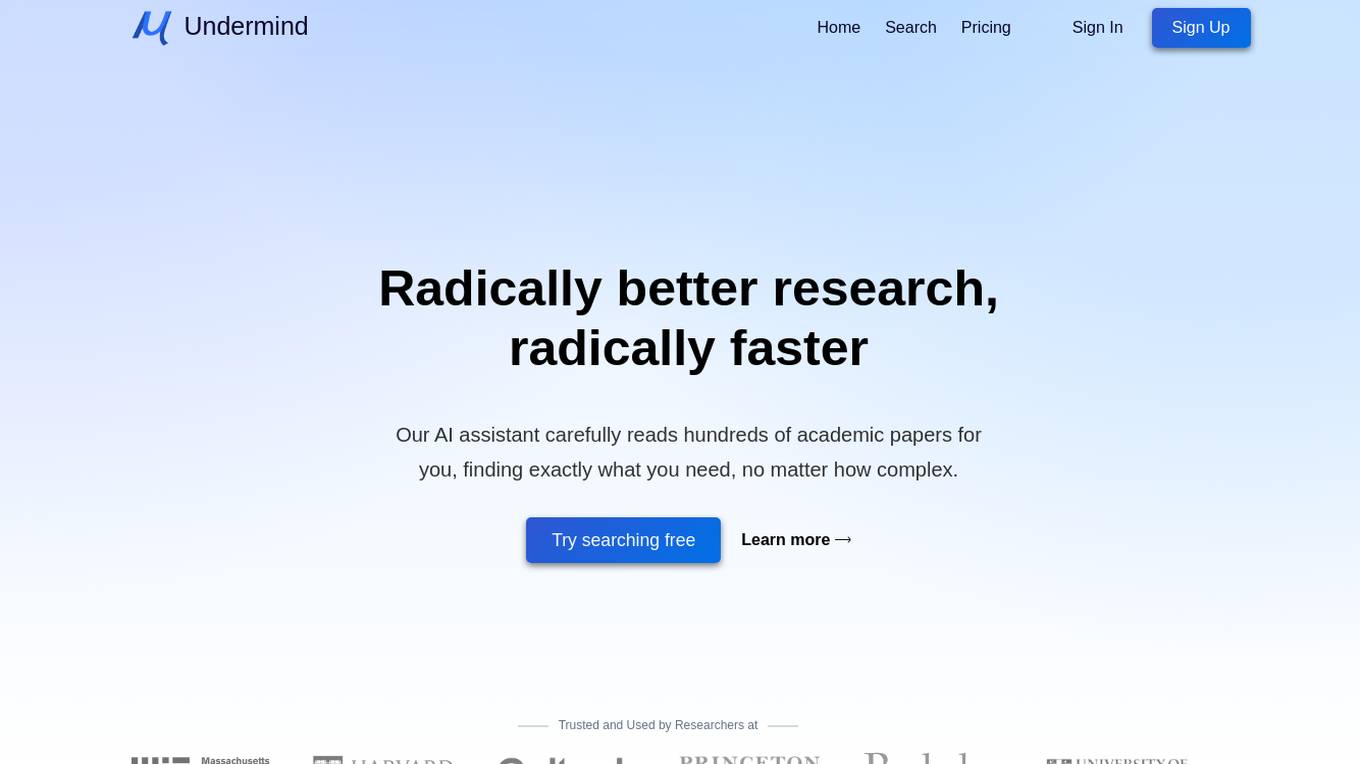
Undermind
Undermind is an AI-powered scientific research assistant that revolutionizes the way researchers access and analyze academic papers. By utilizing intelligent language models, Undermind reads and synthesizes information from hundreds of papers to provide accurate and comprehensive results. Researchers can describe their queries in natural language, and Undermind assists in finding relevant papers, brainstorming questions, and discovering crucial insights. Trusted by researchers across various fields, Undermind offers a unique approach to literature search, surpassing traditional search engines in accuracy and efficiency.

Salt AI
Salt AI is a development engine tailored for life sciences organizations, aiming to accelerate advancements in the field by enabling faster adoption and utilization of AI technologies. The platform offers reliable and reproducible AI processes, optimized for speed and efficiency, and promotes transparency and collaboration within workflows. With a focus on supporting best-in-class life sciences research models, Salt AI empowers users to enhance their understanding of biological processes through flexible and performant AI solutions.
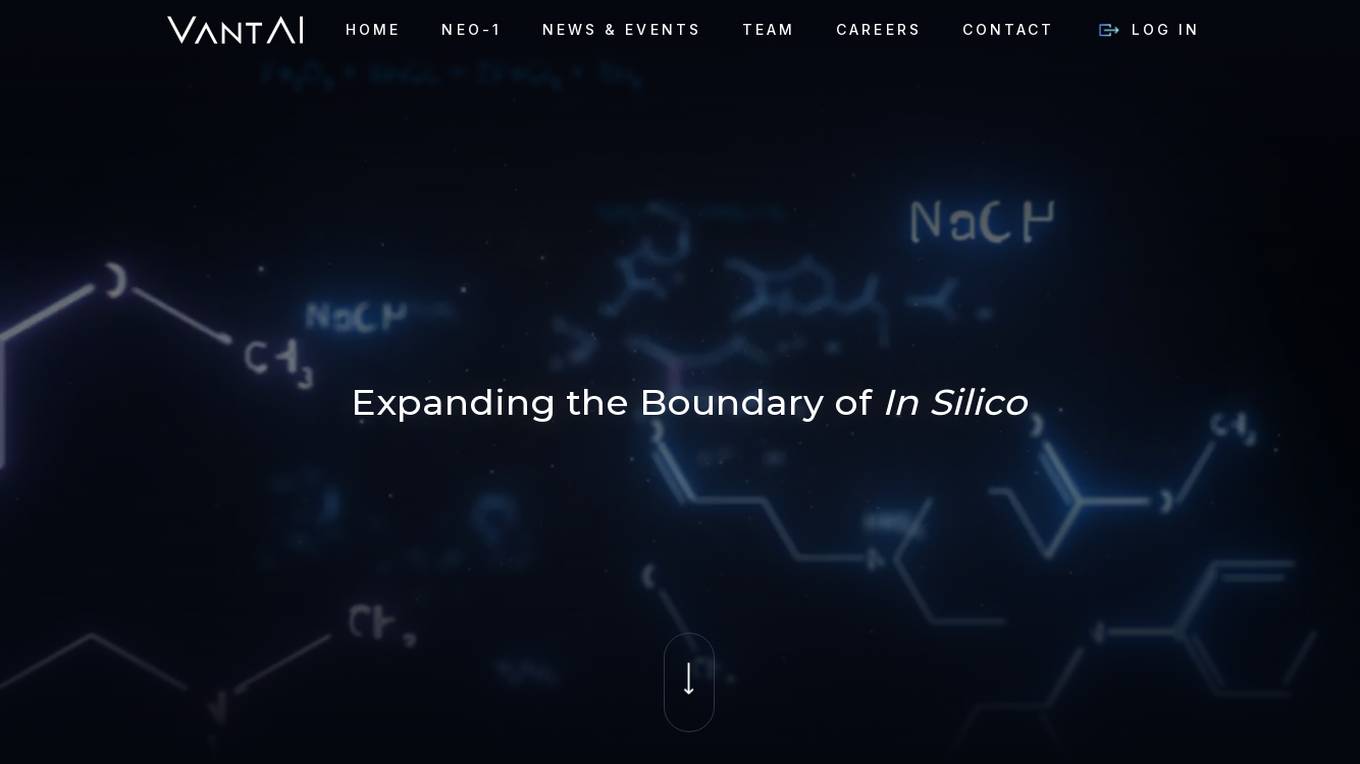
VantAI
VantAI is an AI application focused on generative AI-enabled drug discovery. Their mission is to unlock a new chapter in medicine by making protein interactions programmable. They have an integrated discovery platform with phase-shifting technologies designed to unlock the full potential of the proximity modulator modality. VantAI collaborates with industry leaders to build the future of therapeutic design. The company has launched Neo-1, the first AI model to rewire molecular interactions by unifying structure prediction and generation.
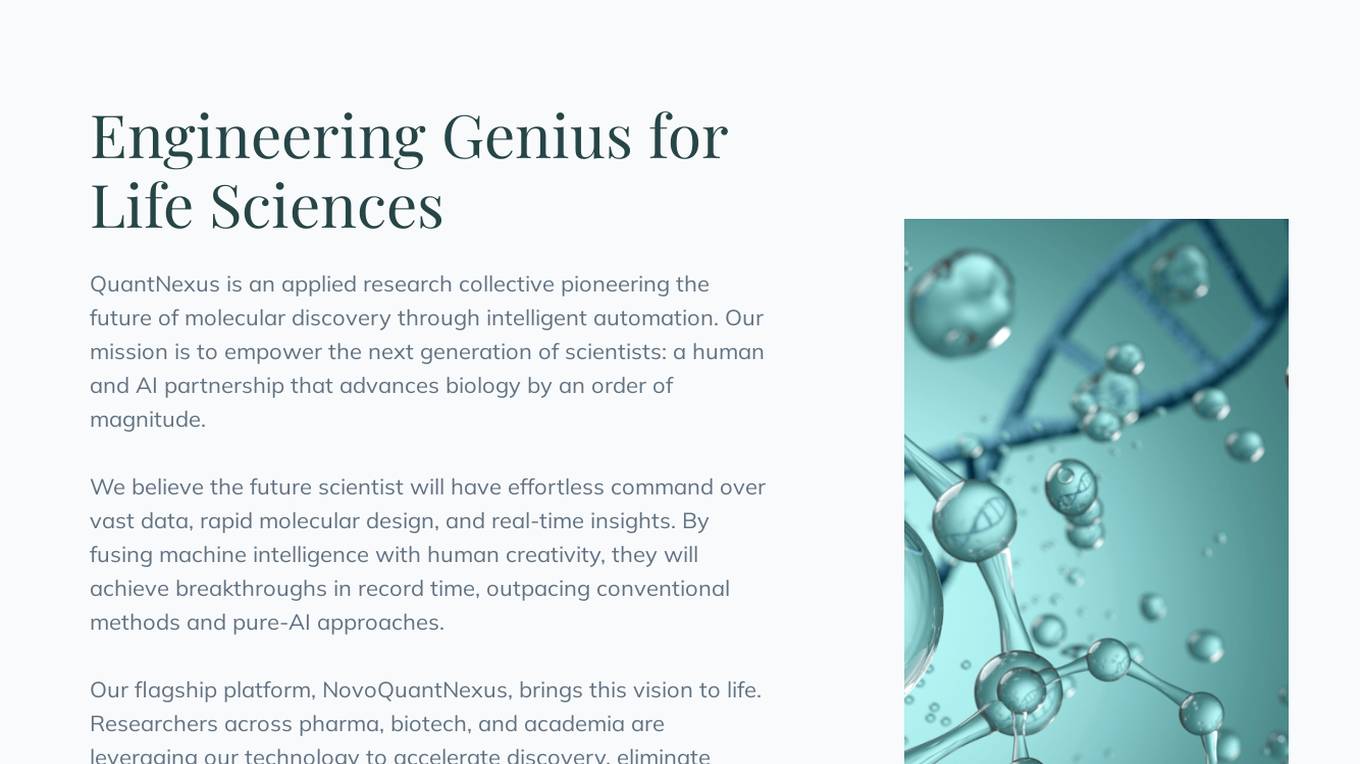
QuantNexus
QuantNexus is an applied research collective that pioneers the future of molecular discovery through intelligent automation. Their mission is to empower the next generation of scientists by creating a human and AI partnership that advances biology significantly. The platform, NovoQuantNexus, fuses machine intelligence with human creativity to achieve breakthroughs in record time, outpacing conventional methods and pure-AI approaches. Researchers in pharma, biotech, and academia are leveraging this technology to accelerate discovery and redefine possibilities in life sciences.
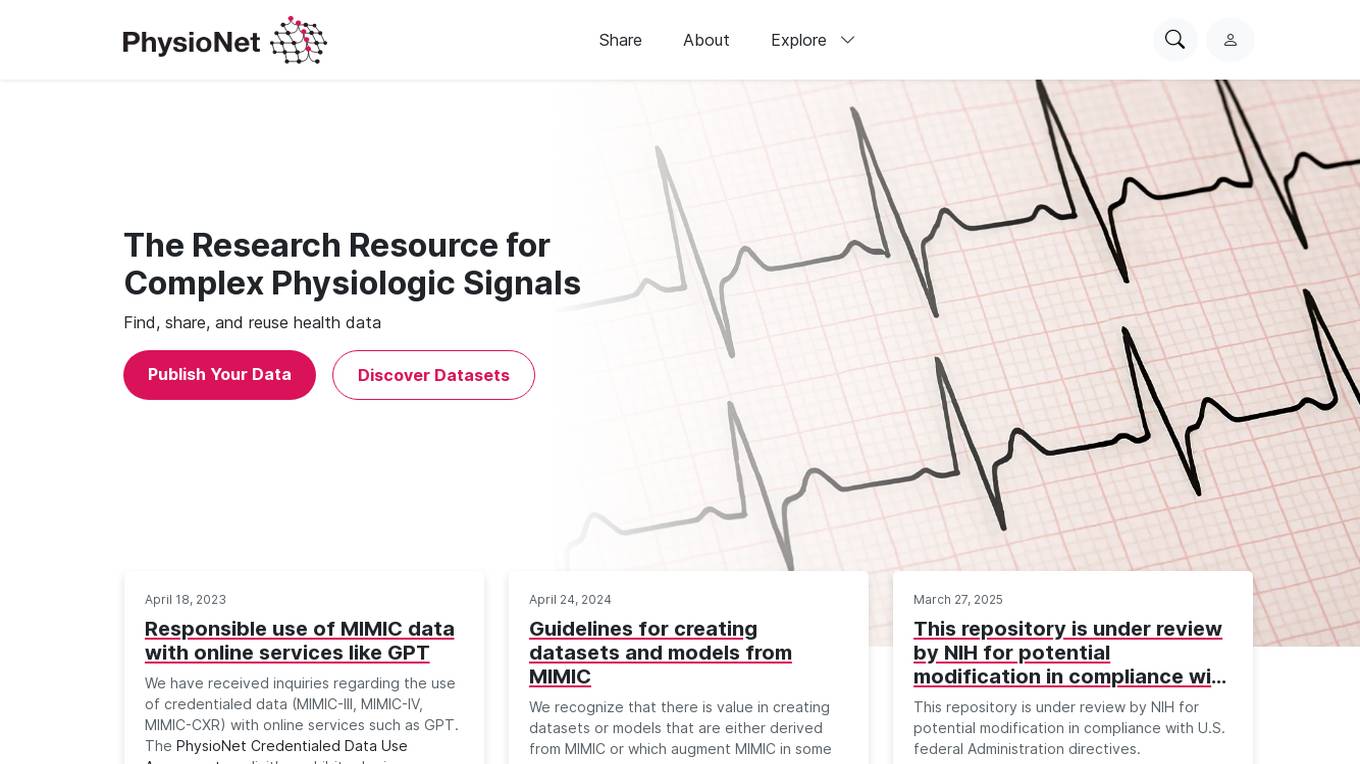
PhysioNet
PhysioNet is a research resource for complex physiologic signals that facilitates finding, sharing, and reusing health data. It provides access to various datasets and software tools for researchers in the medical field. PhysioNet aims to support the responsible use of data, including guidelines for creating datasets and models from sources like MIMIC. The platform also addresses access restrictions under the DOJ Data Security Program, ensuring compliance with legal obligations while supporting researchers in understanding and navigating policy changes.
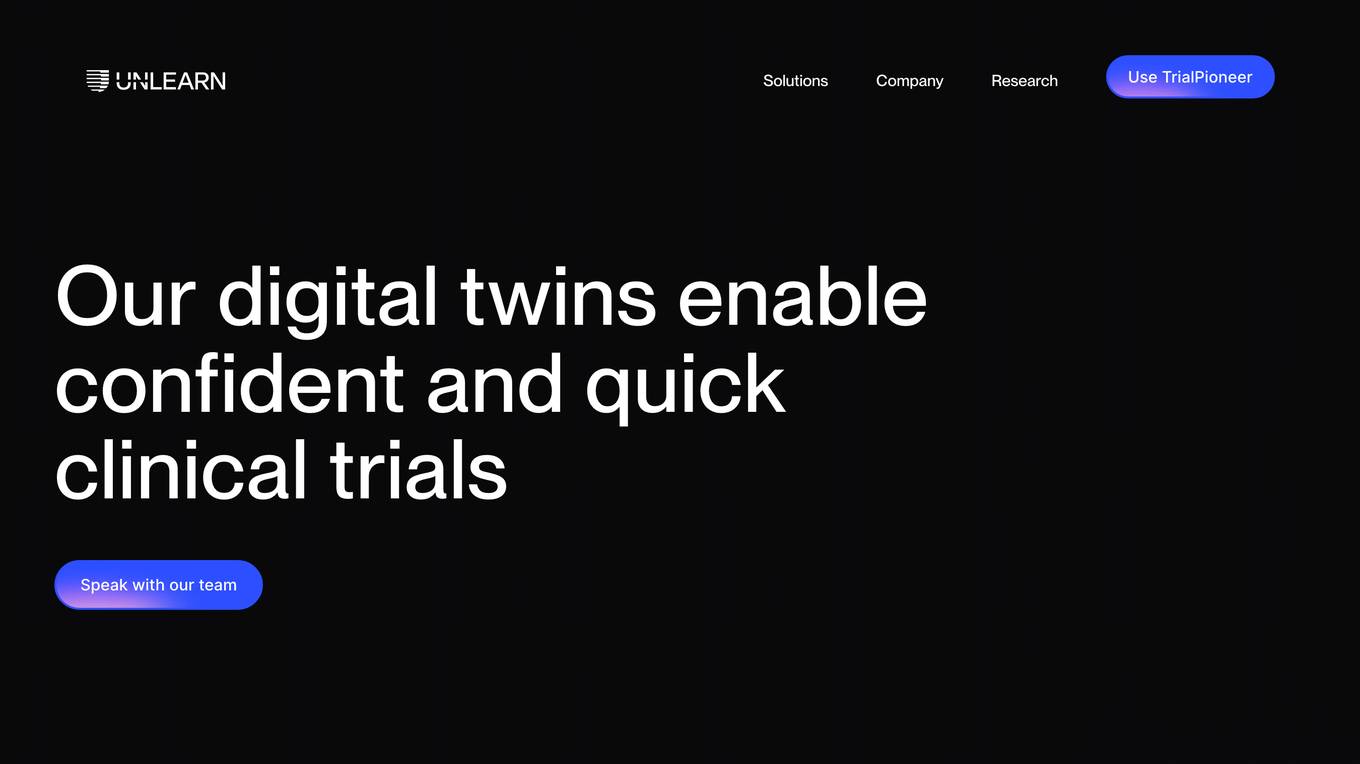
Unlearn.ai
Unlearn.ai is an AI-powered platform that streamlines clinical trials by leveraging digital twins of patients. The platform replaces traditional siloed workflows with a unified workspace for trial design, planning, and analysis. By utilizing digital twins, data, and AI, Unlearn.ai helps teams achieve alignment faster, test assumptions earlier, and move forward with confidence in clinical development.

Astra Health
Astra Health is Australia's leading AI scribe application designed for clinicians to enhance patient care and streamline clinical documentation. The platform offers multilingual support, efficient transcription, and secure documentation, ensuring compliance with Australian privacy standards. Clinicians can customize templates, consult or dictate in real-time, and seamlessly transfer notes to EMR/PMS systems. Astra Health empowers clinicians to focus on patient care by automating documentation tasks and improving accuracy.
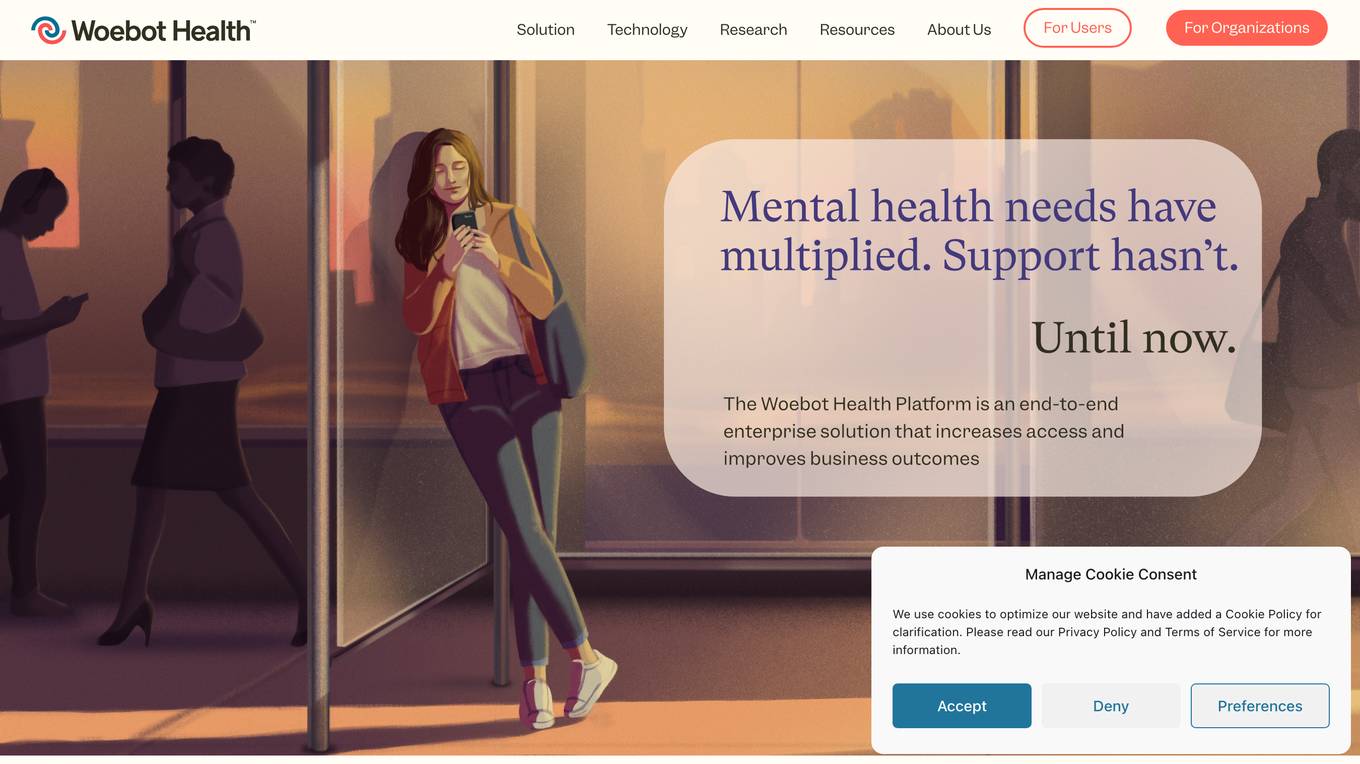
Woebot Health
Woebot Health is a chat-based AI wellness tool that aims to make mental health support radically accessible. Founded in 2017 by clinical research psychologist Dr. Alison Darcy, Woebot Health focuses on providing empathetic and rigorous mental health care through supportive relationships. The tool offers personalized services to improve mental health outcomes and is designed to adapt to the changing needs of individuals and organizations.
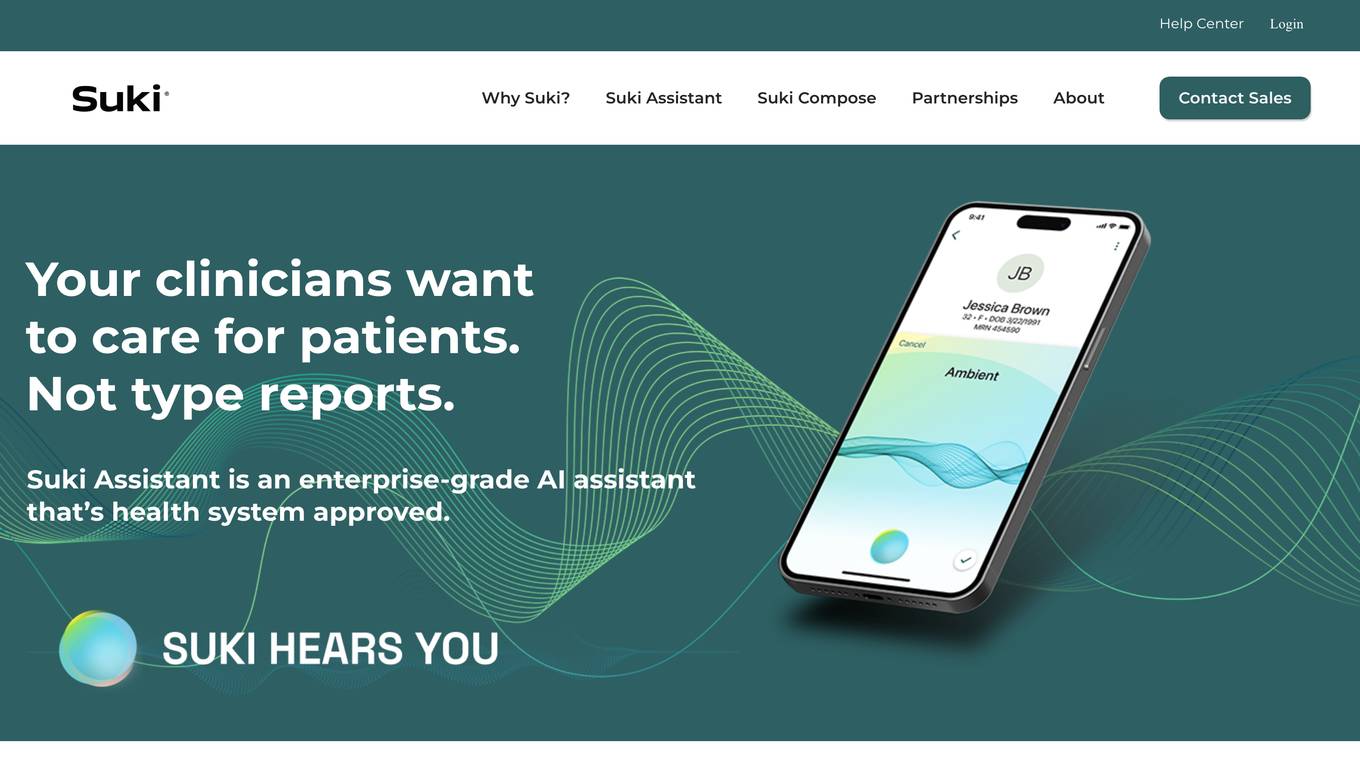
Suki AI
Suki AI is an AI-powered healthcare assistant that offers ambient documentation, clinical reasoning, assisted coding, and compliance solutions for clinicians. It provides a robust SDK and suite of APIs for integrating AI capabilities into healthcare applications. Suki aims to reduce the burden of documentation, allowing clinicians to focus on patient care. The platform is fully integrated with major enterprise EHR systems and ensures safe, clinician-reviewed documentation. Suki has a high adoption rate and delivers proven ROI by increasing coding accuracy and clinician efficiency.
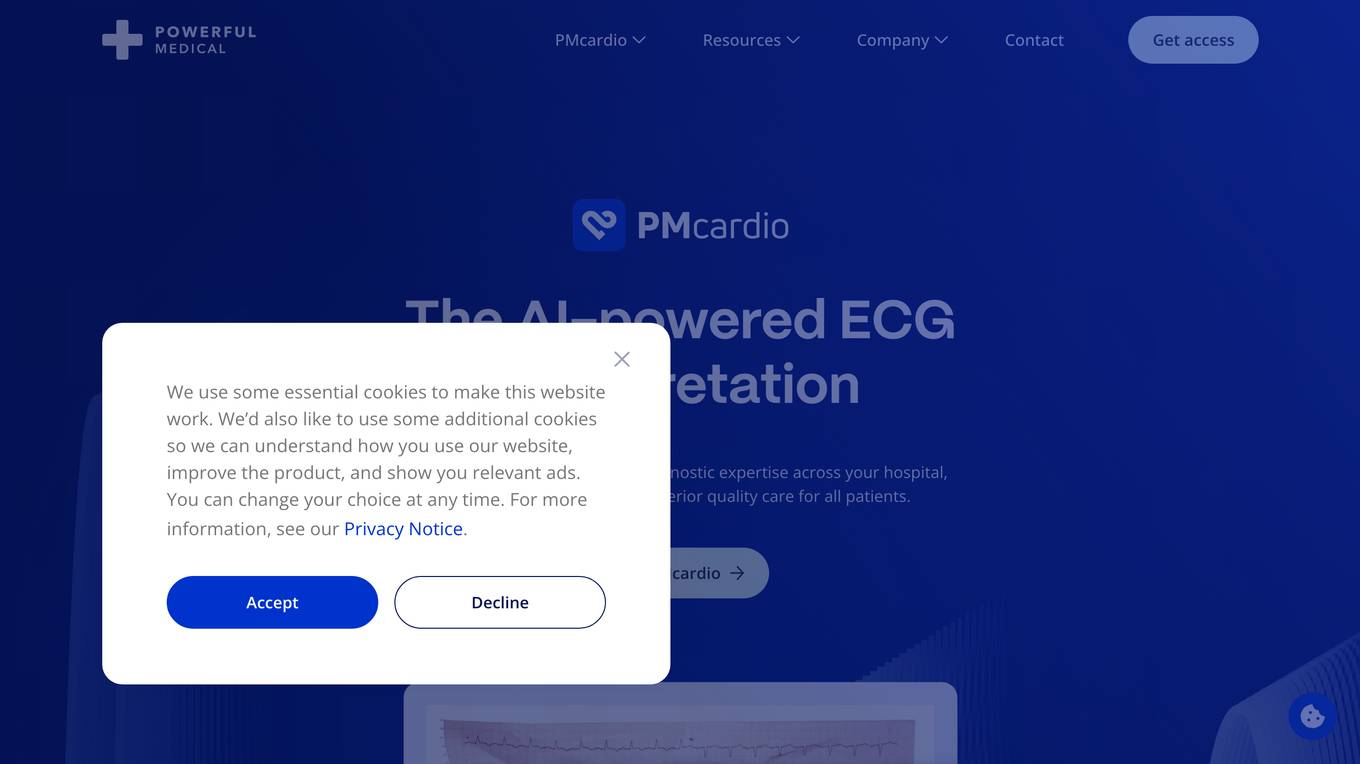
PMcardio
PMcardio is an AI-powered platform that offers accurate and rapid diagnosis of cardiovascular diseases through ECG interpretation. It provides healthcare professionals with advanced AI technology to detect conditions such as acute ST-elevation myocardial infarction (STEMI) and reduced Left Ventricular Ejection Fraction (LVEF) within seconds. PMcardio aims to streamline clinical decision-making, enhance diagnostic accuracy, and improve patient care by leveraging AI algorithms trained on millions of patient outcomes. The platform is designed to ensure standardized ECG reports, facilitate care coordination, and meet the highest standards of quality and security in healthcare settings.
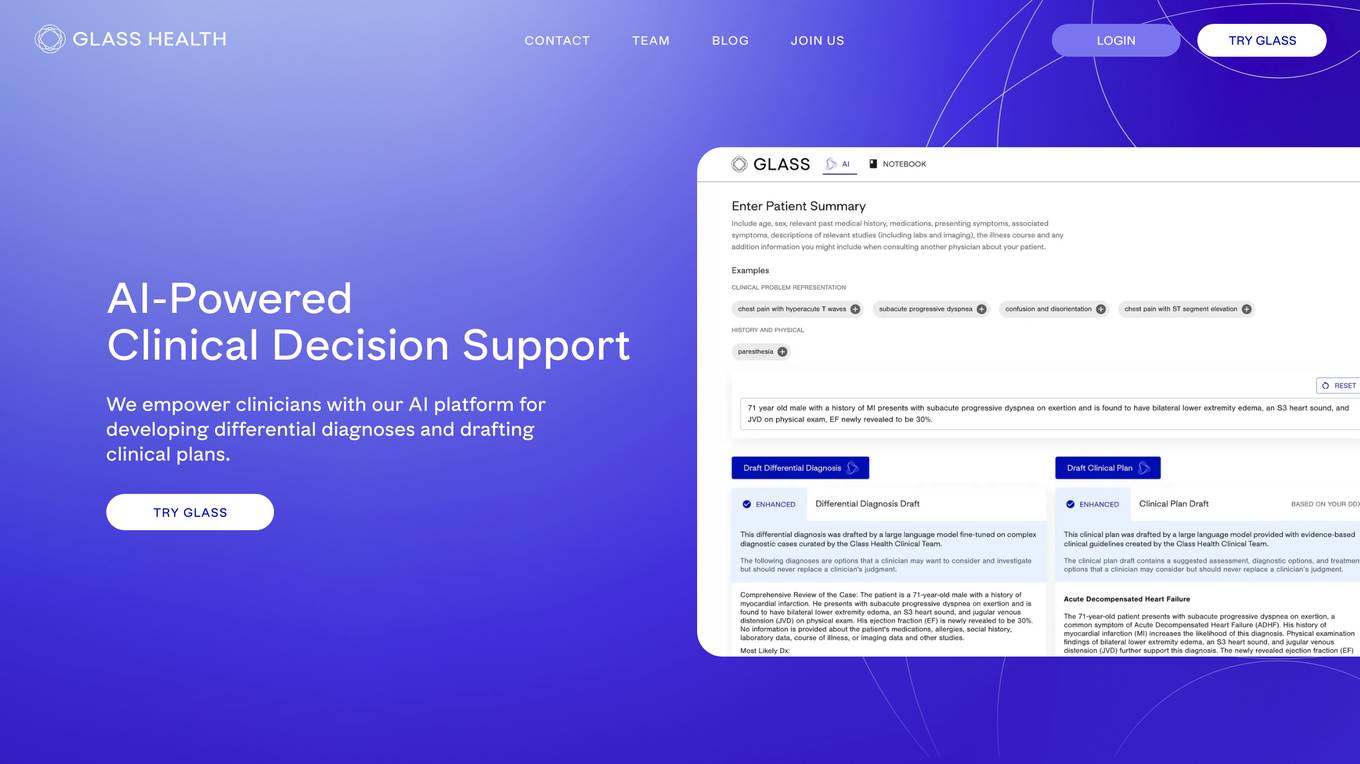
Glass Health
Glass Health is an AI-powered clinical decision support platform that empowers clinicians by providing tools to develop differential diagnoses and draft clinical plans. The platform combines cutting-edge AI technology with evidence-based medical knowledge to streamline diagnostic decisions and optimize clinician workflows. Glass Health's mission is to leverage technology to enhance the practice of medicine, increase diagnostic accuracy, implement evidence-based medicine, promote health equity, and improve patient outcomes globally. The platform is built by clinicians, for clinicians, with a deep commitment to safety, ethics, and alignment.

Tempus
Tempus is an AI-enabled precision medicine company that brings the power of data and artificial intelligence to healthcare. With the power of AI, Tempus accelerates the discovery of novel targets, predicts the effectiveness of treatments, identifies potentially life-saving clinical trials, and diagnoses multiple diseases earlier. Tempus's innovative technology includes ONE, an AI-enabled clinical assistant; NEXT, a tool to identify and close gaps in care; LENS, a platform to find, access, and analyze multimodal real-world data; and ALGOS, algorithmic models connected to Tempus's assays to provide additional insight.
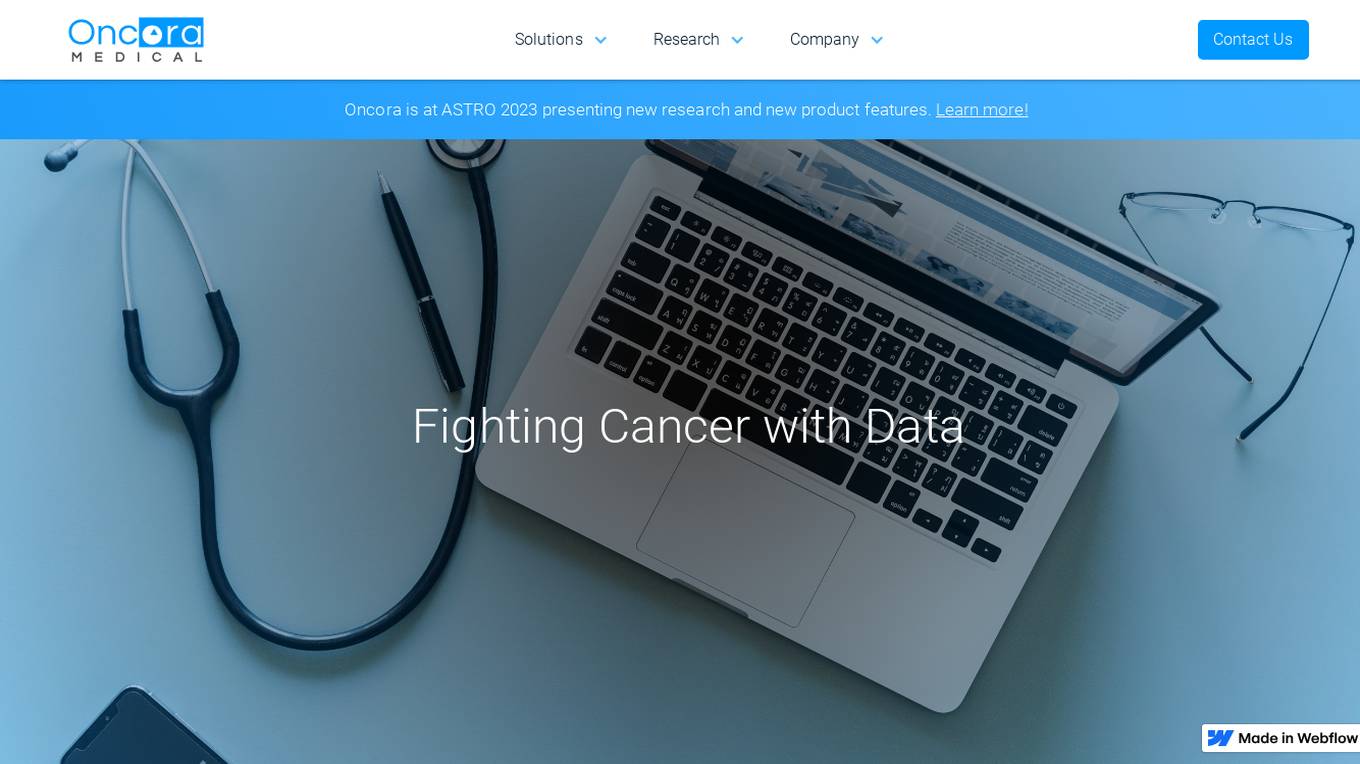
Oncora Medical
Oncora Medical is a healthcare technology company that provides software and data solutions to oncologists and cancer centers. Their products are designed to improve patient care, reduce clinician burnout, and accelerate clinical discoveries. Oncora's flagship product, Oncora Patient Care, is a modern, intelligent user interface for oncologists that simplifies workflow, reduces documentation burden, and optimizes treatment decision making. Oncora Analytics is an adaptive visual and backend software platform for regulatory-grade real world data analytics. Oncora Registry is a platform to capture and report quality data, treatment data, and outcomes data in the oncology space.
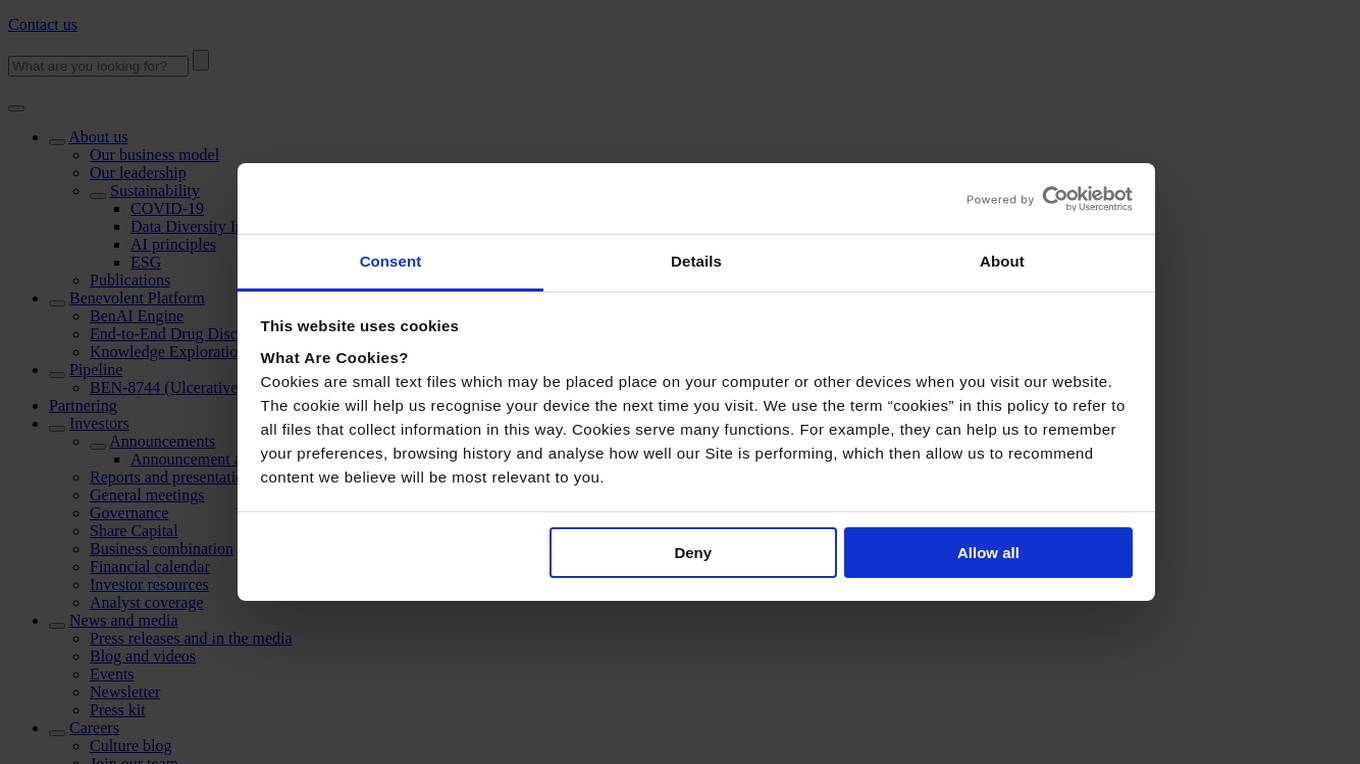
BenevolentAI
BenevolentAI is a leader in applying advanced AI to accelerate biopharma drug discovery blending science and technology with a focus on finding solutions for complex diseases. We empower both biopharmaceutical companies and our internal scientists to harness the full potential of data and AI to accelerate the next generation of scientific advances. We have built our AI-enabled drug discovery engine to drive a revolution in drug discovery. The Benevolent Platform™ unlocks the power of a vast biomedical data landscape to provide a multidimensional representation of human biology across all diseases. We believe this approach will improve the probability of clinical success, and help us deliver life-changing treatments to patients – because it matters.